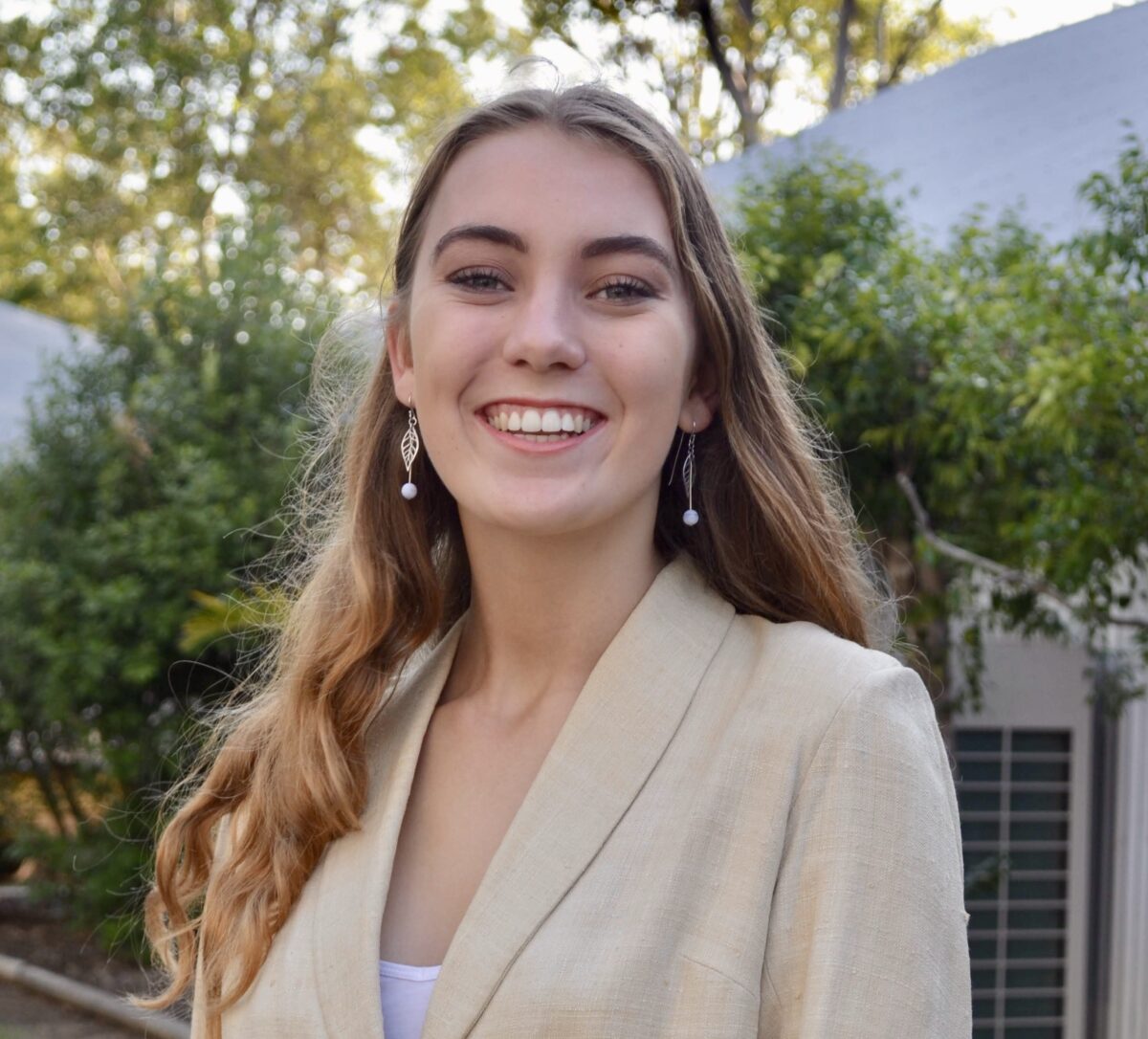
Written by Sophie Kalkowski-Pope
Bright flashes of torchlight pierce the inky depths around us. The sweeps of golden light illuminate a seemingly bare sea floor, a gentle sandy slope leading into the gloom.
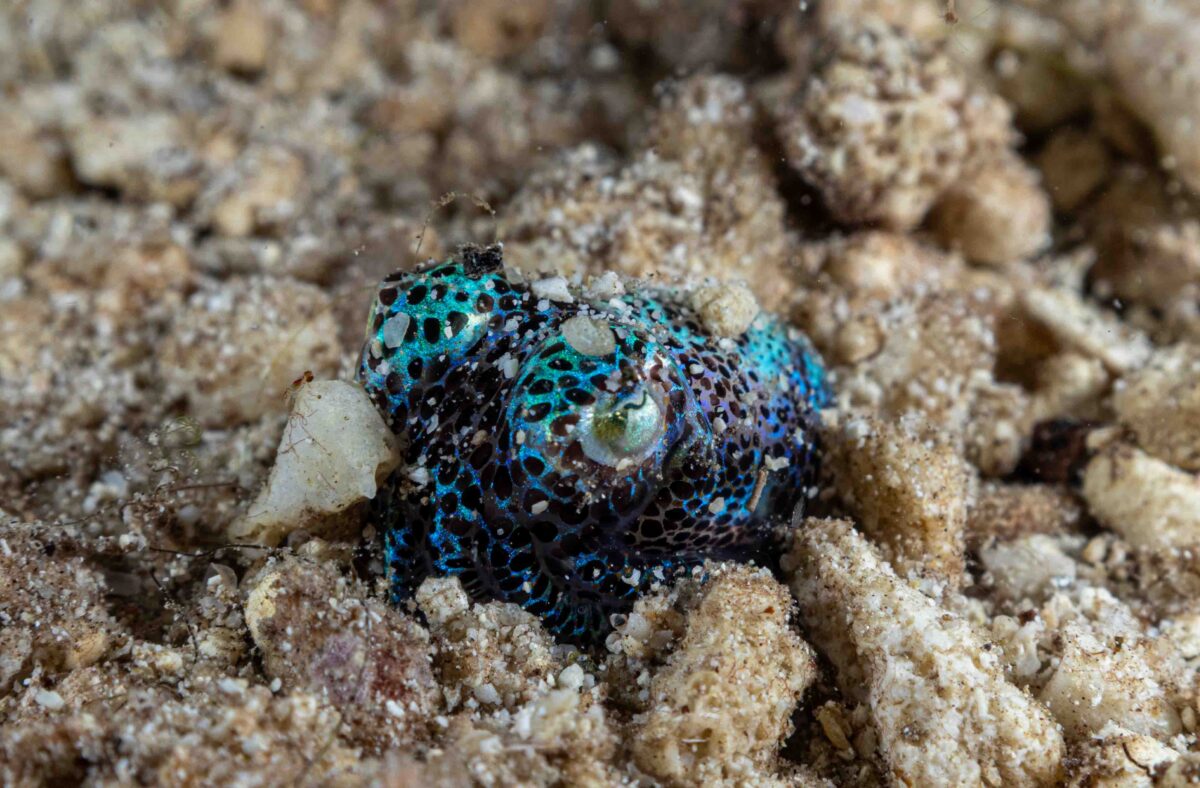
There, out of the corner of my eye, I see a flash of colour… I approach the tiny turquoise gem nestled in the sand. A bobtail squid! I squeak in excitement through my regulator, pulling up my macro lens to take a shot. What a great welcome to Indonesia’s seas!
After departing from the Philippines, my next stop was beautiful North Sulawesi. North Sulawesi actually is a geological continuation of the southern Philippines island chain.
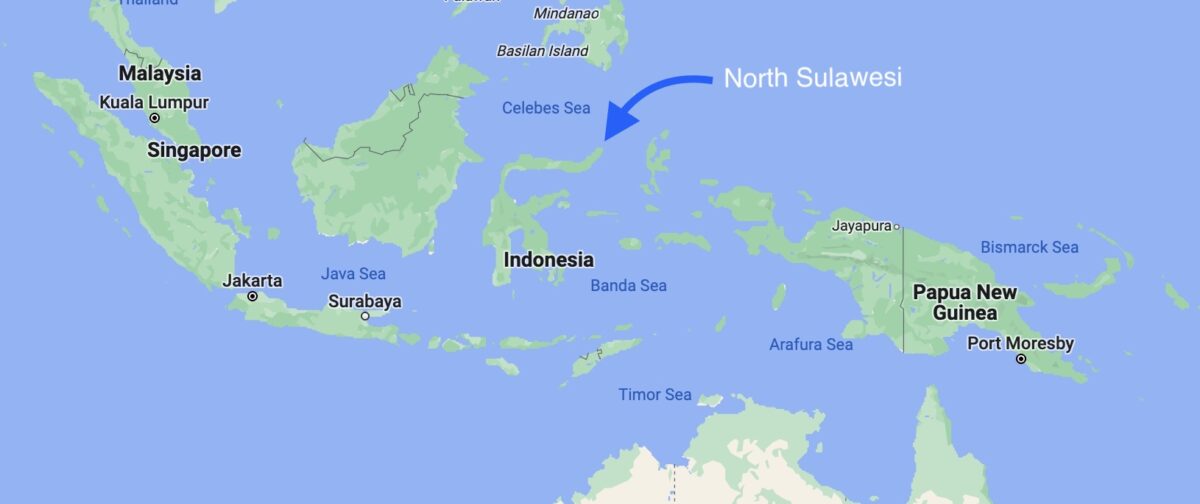
This area of Indonesia is a remarkable part of the world, sporting 3 very different unique diving experiences within close proximity of each other due in part to the intersection of three oceanic plates.
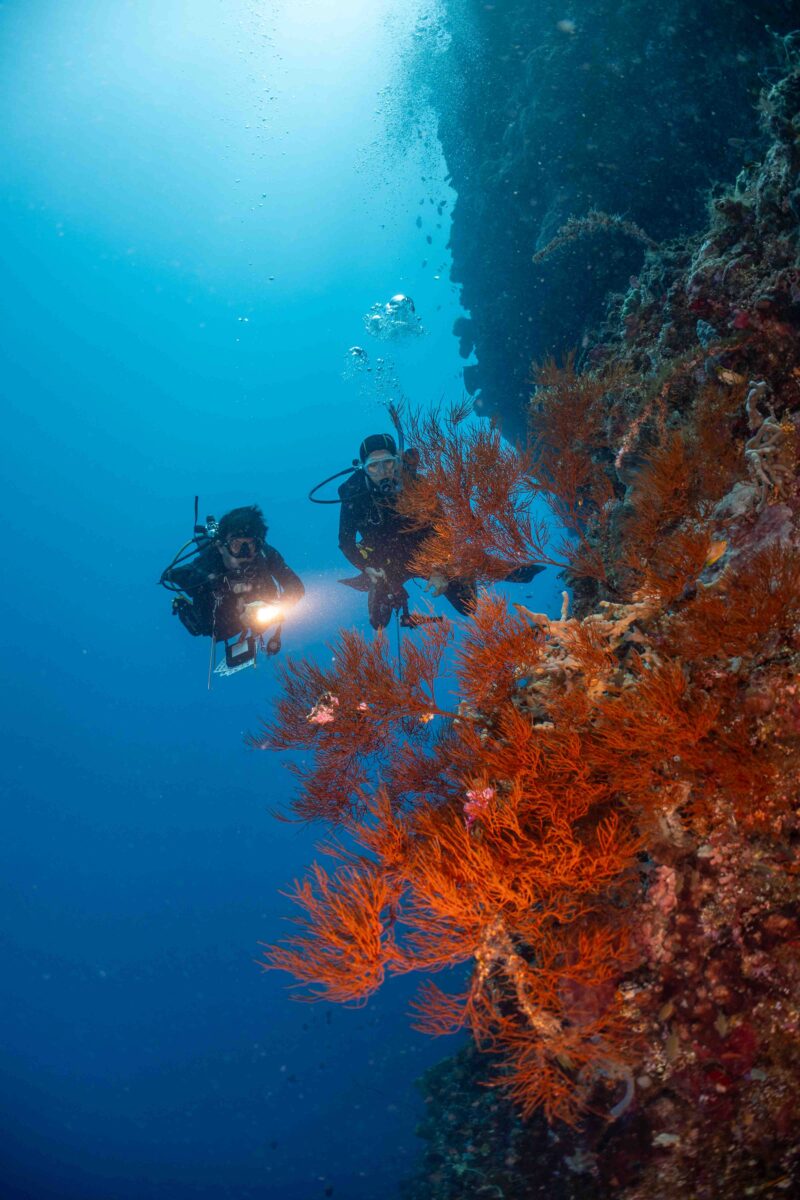
The region of Bunaken National Park, one of the earliest national marine parks, is famous for its sheer drop offs and wall diving. Bunaken Island itself is a lovely sandy, classic tropical beach sloping off to the reef.
Bangka Island, a little further offshore to the north, is renowned for beautiful coral gardens, pinnacles and a variety of muck and wall sites.
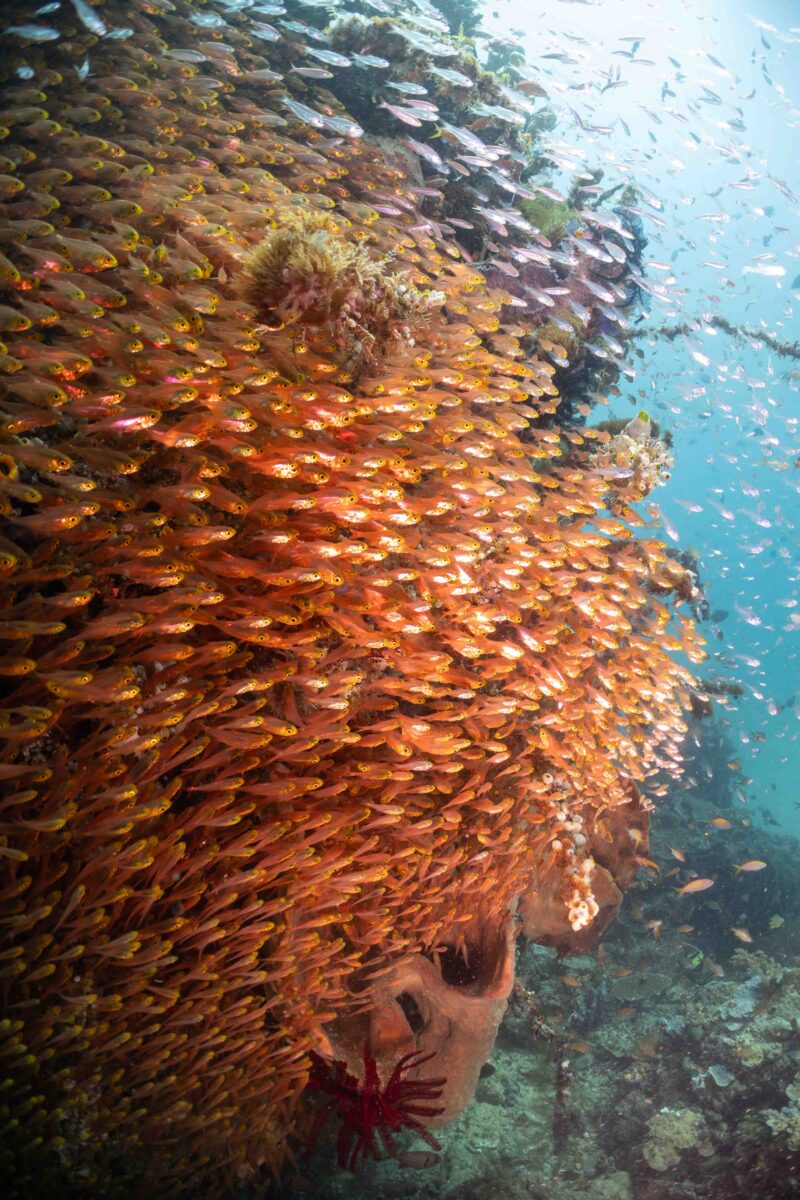
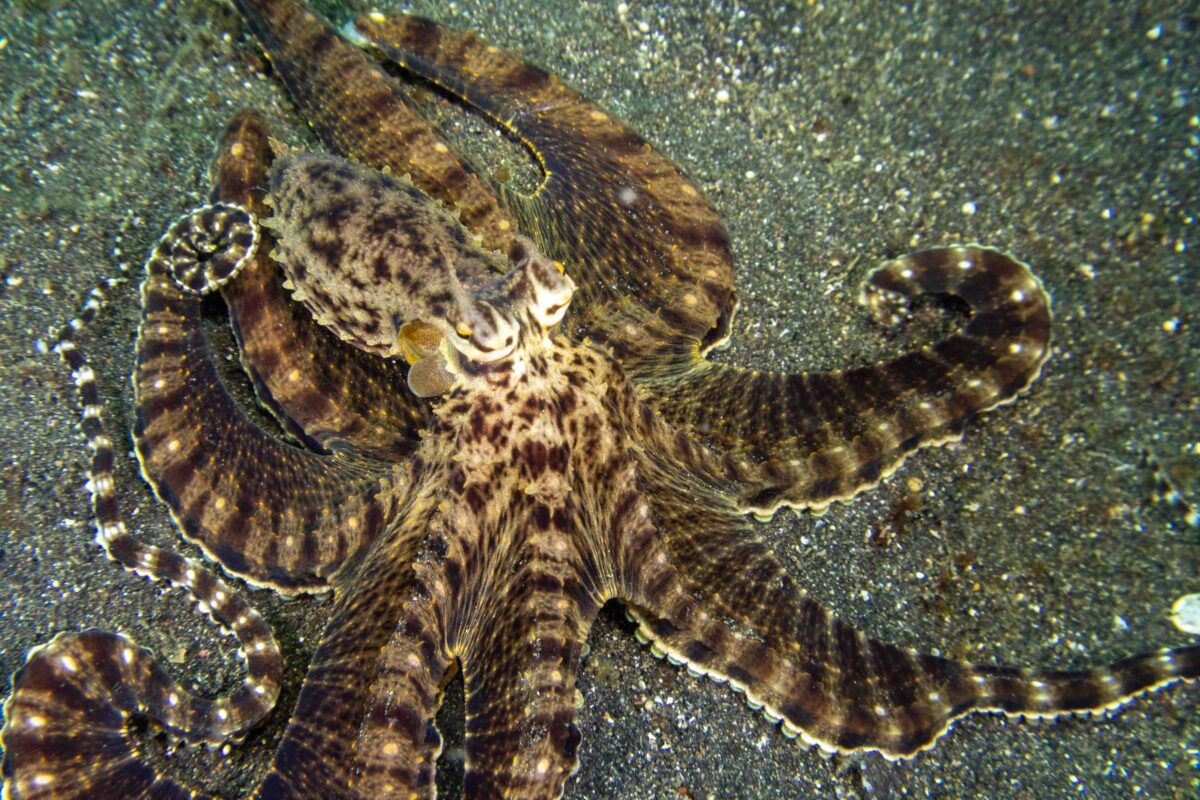
Of course, Lembeh Strait, a narrow boat channel between the southern coast of the main peninsula and the long narrow parallel Lembeh Island, is world famous for its muck diving, with sandy slopes and walls littered with an incredible array of odd and wonderful critters.
I was lucky enough to be hosted by three different organisations during my time here: MUREX Dive Resorts, Eco Divers Lembeh, and the Regional Secretariat of the Coral Triangle Initiative.
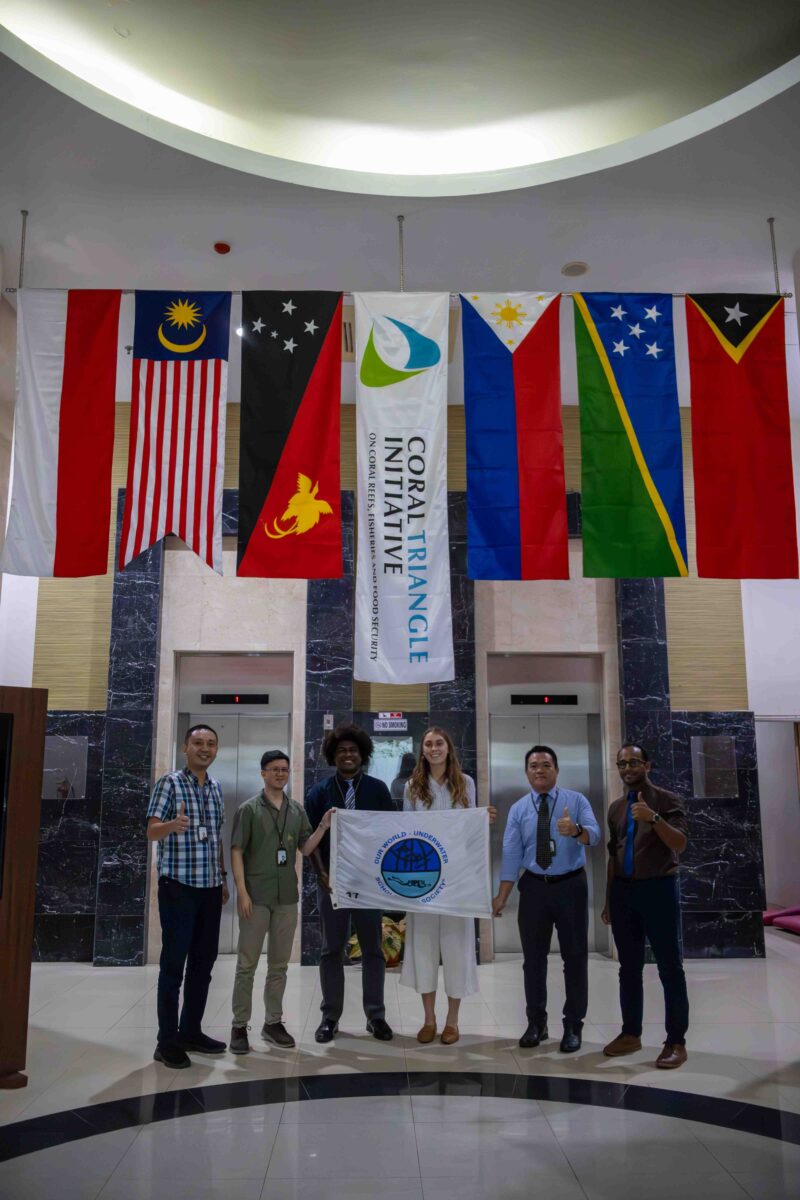
The Coral Triangle Initiative on Coral Reefs, Fisheries and Food Security (CTI-CFF or CTI) is a treaty partnership between 6 countries (Indonesia, Philippines, Malaysia, Papua New Guinea, Timor-Leste, and the Solomon Islands) for the sustainable management of the region’s marine resources.
Formed in 2009 via the signing of the Leaders Declaration, the multilateral partnership aims to improve food security via sustainable management while considering the impacts of climate change.
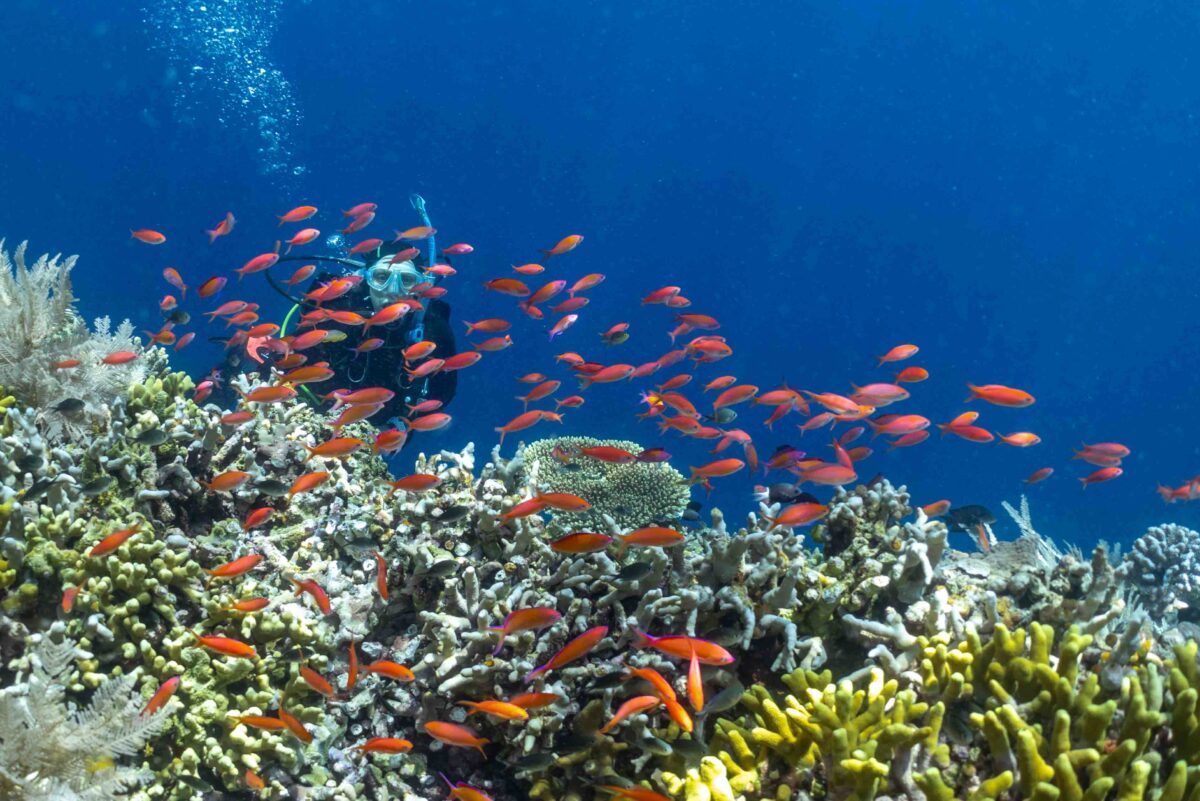
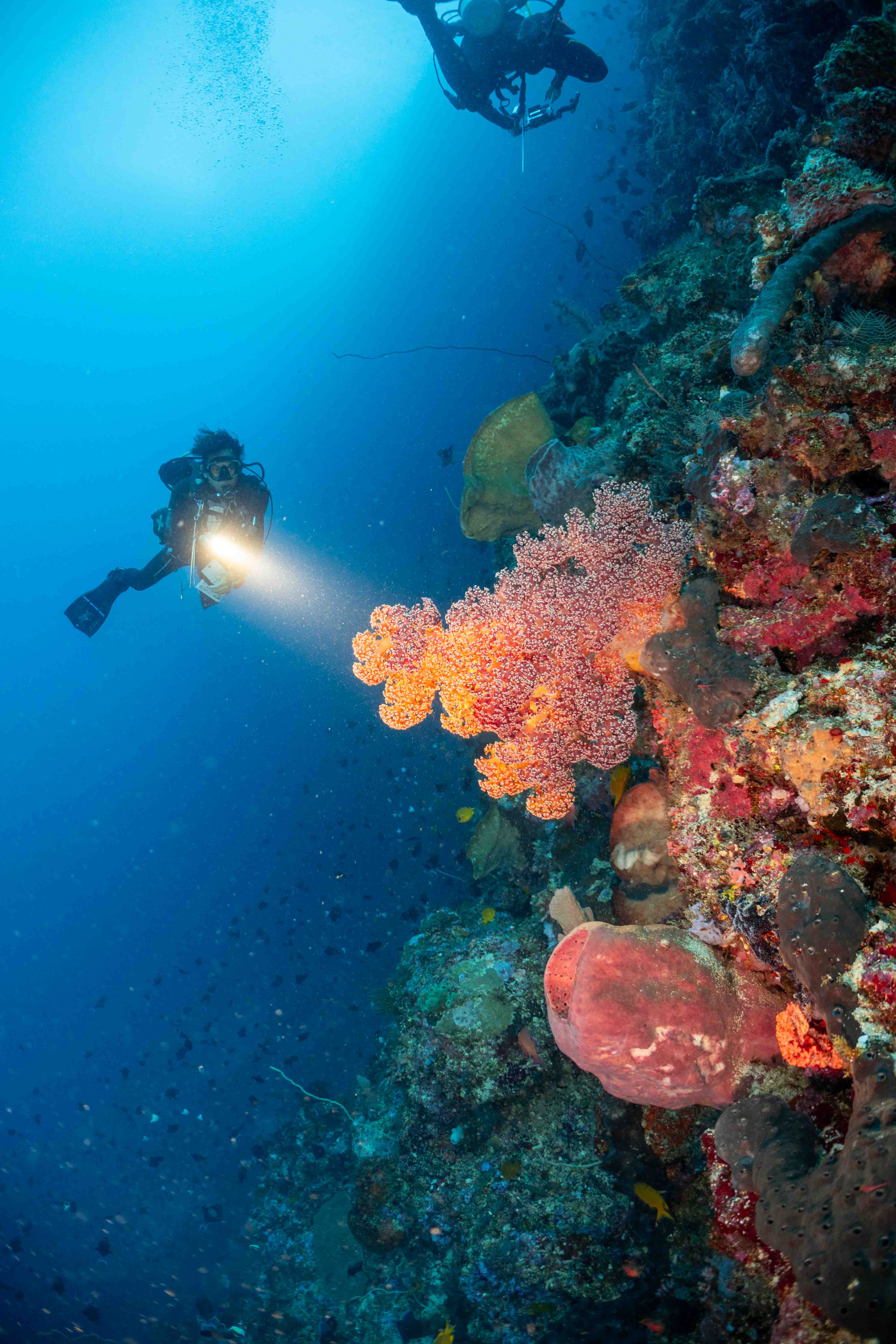
This is achieved via a regional plan of action and thematic working groups focused on the key areas of interest. These include fisheries management, MPAs, climate change adaptation, threatened species, women’s leadership, and other areas focused on governance and business.
I was delighted to be able to exchange my own experience with the CTI team when I presented the CoralWatch program while I was here, illustrating how Coral Health Charts could be integrated into community-based management.
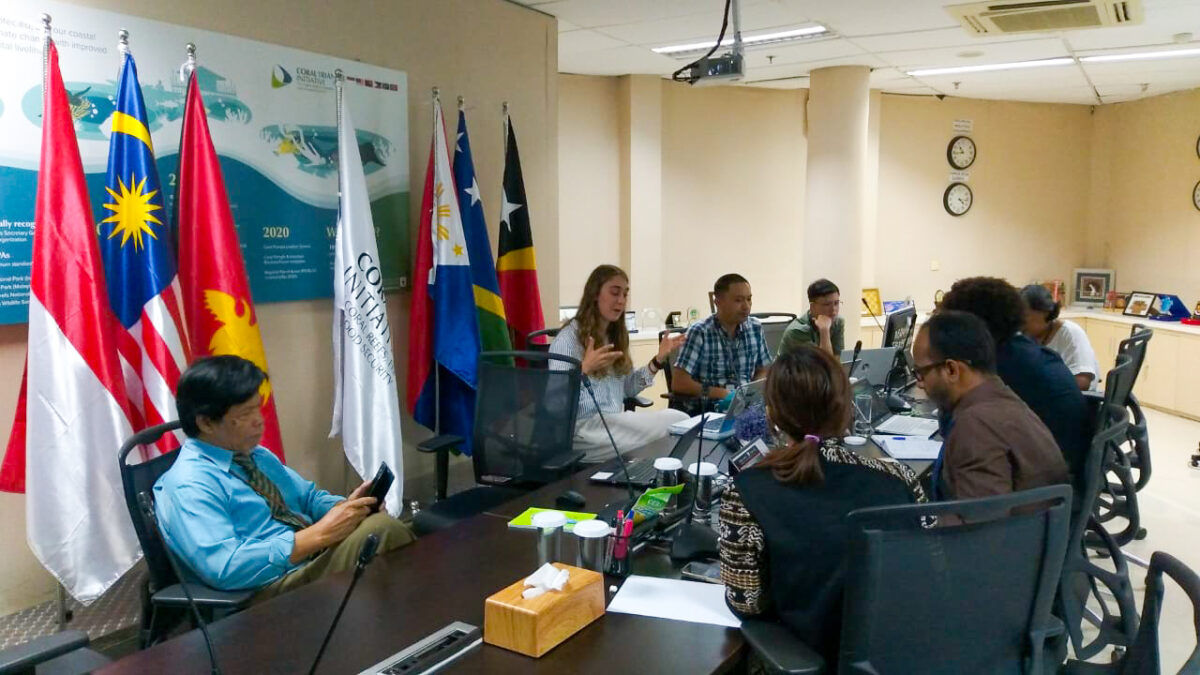
It was fantastic to get the opportunity to meet with the team and understand better the role of international secretariats in marine conservation. Thank you to Chris Rotinsulu and the team for welcoming me!
My second hosting experience in Indonesia was through MUREX Dive Resorts.
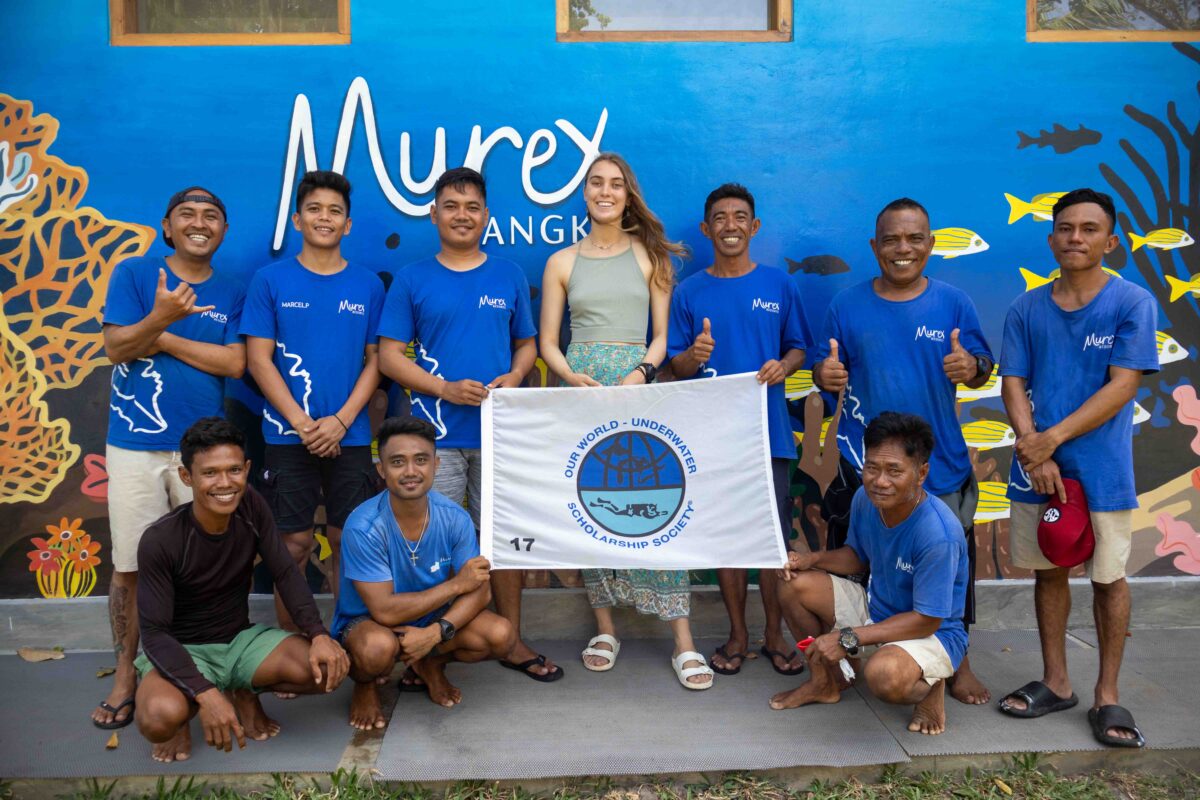
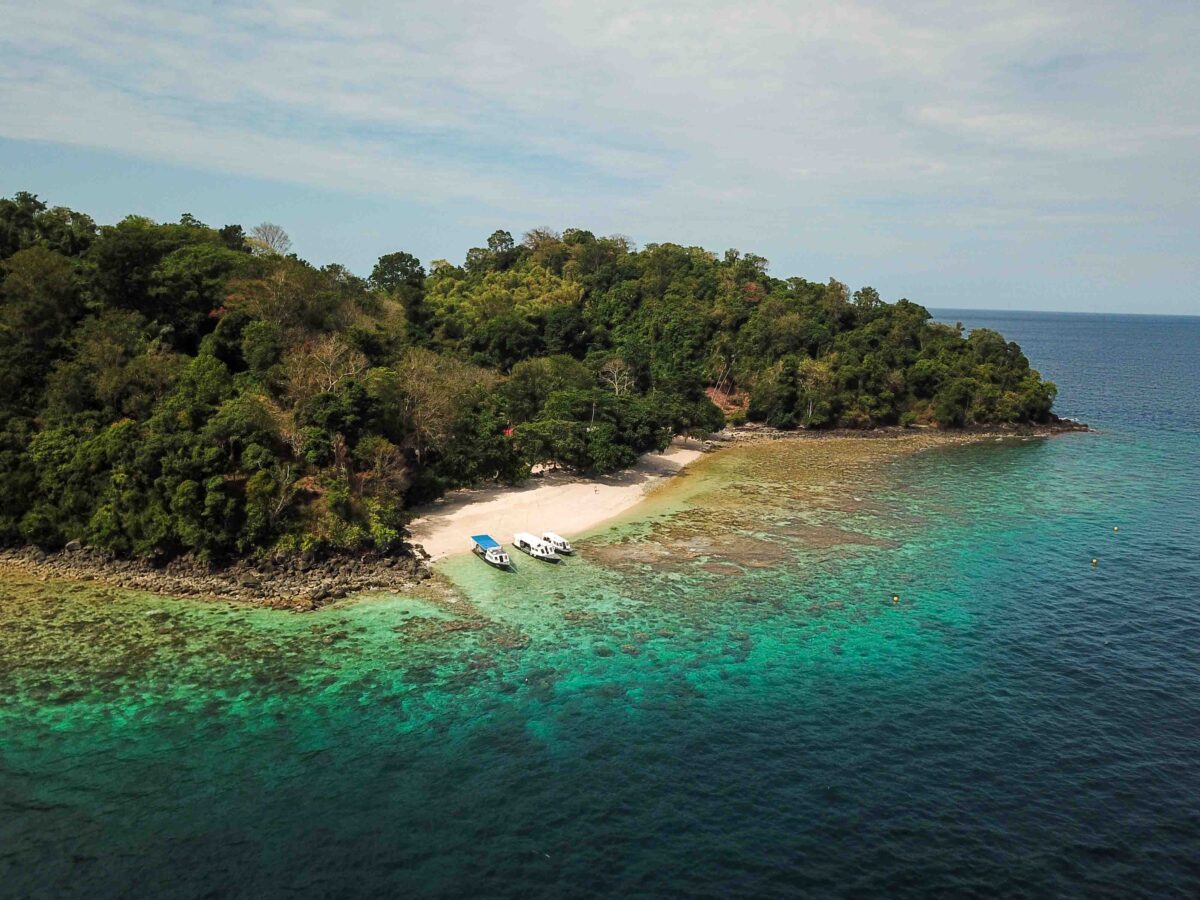
Here I tried out my macro lens for the very first time, and learnt about the logistics of coordinating boats, guests and transfers across three different locations!
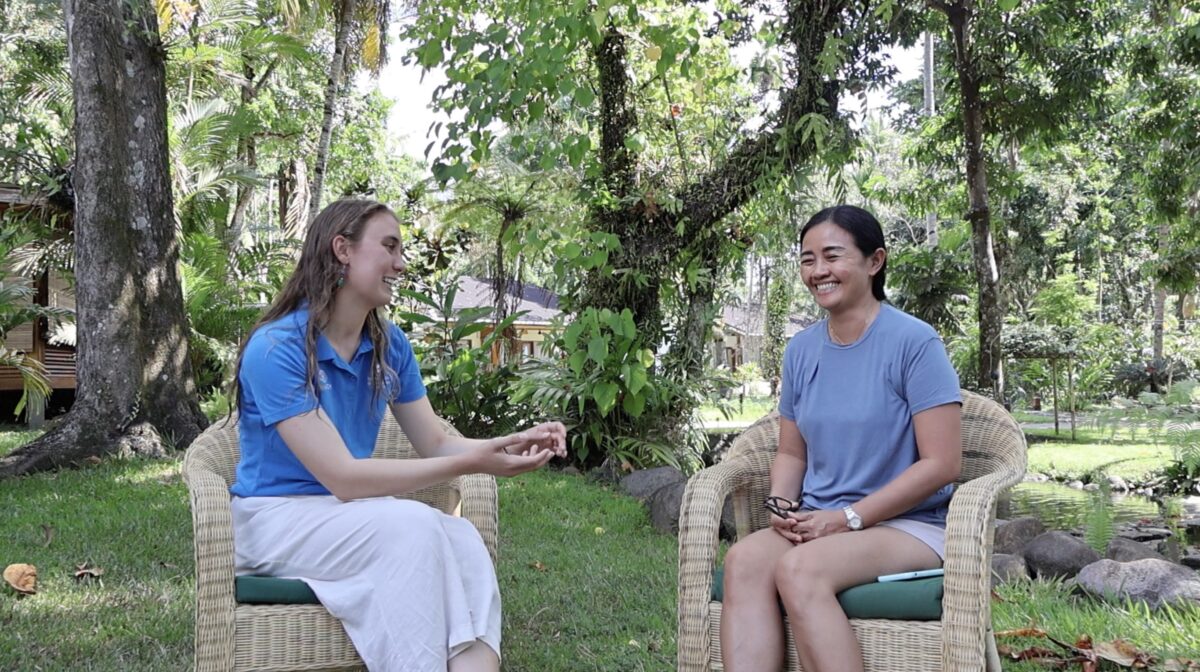
While I was there I met with Angelique Batuna, the owner, who told me the story of how her family business helped outlaw mining on Bangka Island, leading to its protection and a new location for sustainable dive tourism.
This legal process spanned over 10 years that went all the way to the high court, but ultimately resulted in the protection of the island. What an inspiring story of a community standing up for its environment!
While I was there, Janri, a dive guide and photographer, showed me how to use my lenses and the correct positioning for my strobes. Thank you for your help!
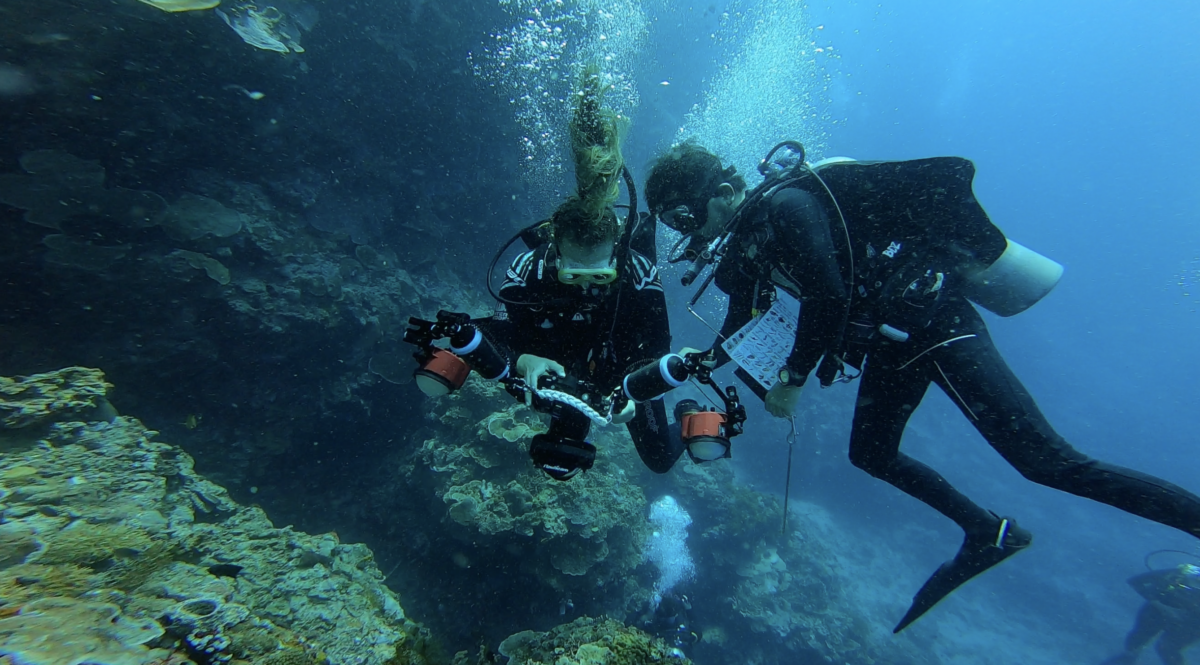
With time spent between both Murex Manado and Murex Bangka, I got to experience a variety of beautiful dive sites. I also gave another CoralWatch presentation at each resort, explaining how the monitoring tool could be used by their divemasters and guests.
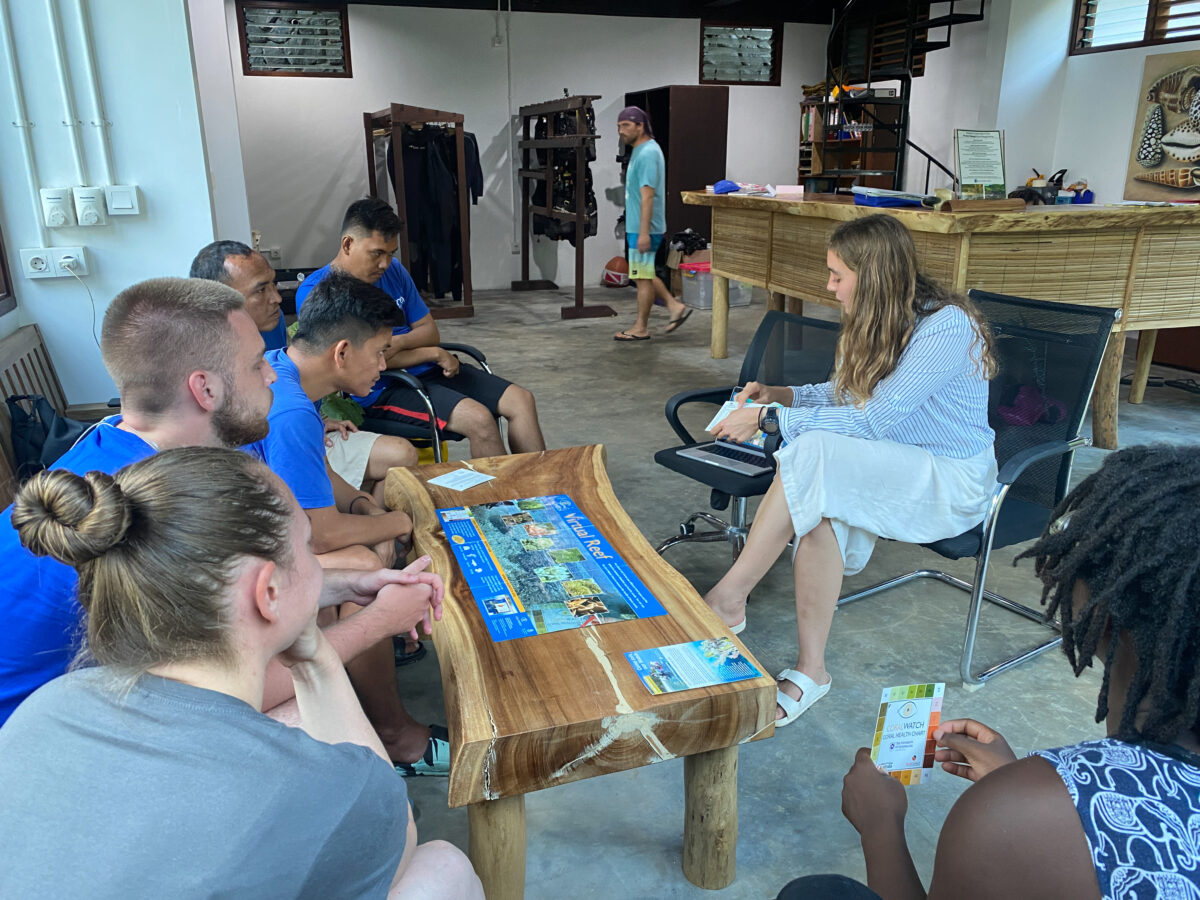
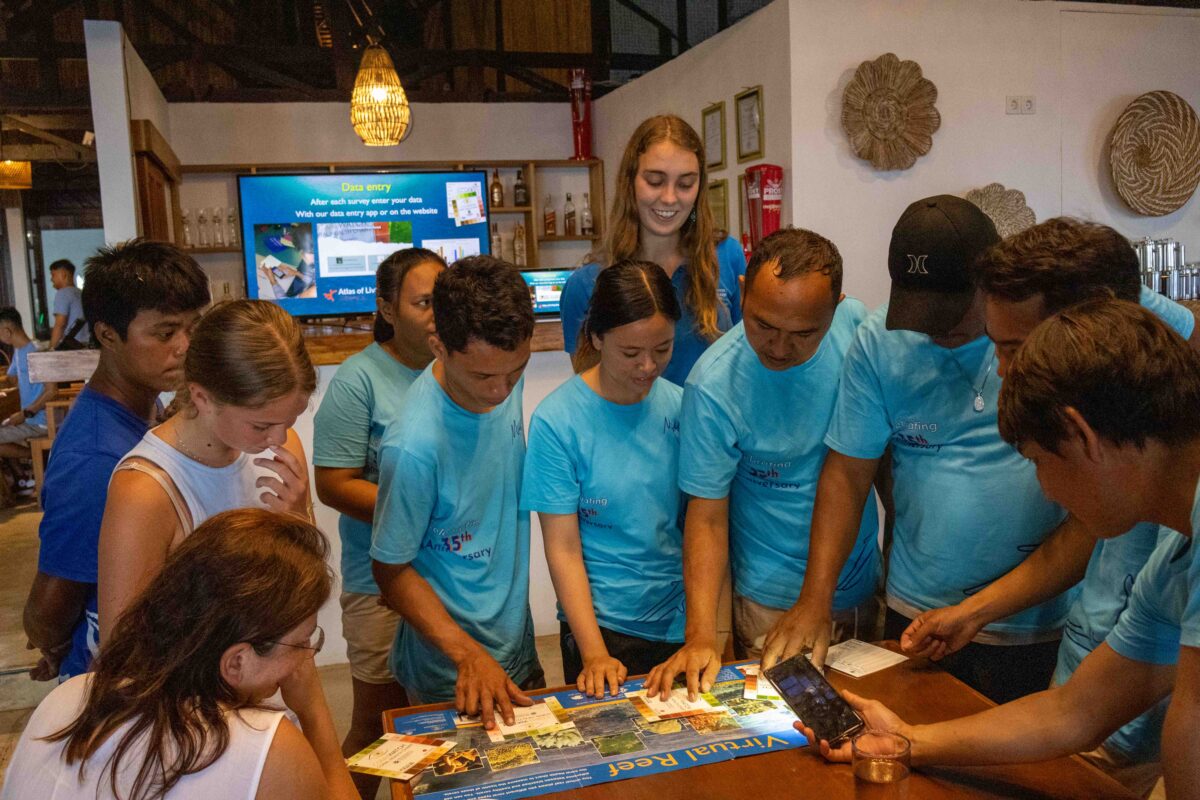
Finally, I traveled south to Lembeh Strait to meet with my final host, EcoDivers Lembeh Resort. While I was there I learnt about their approach to sustainable dive tourism.
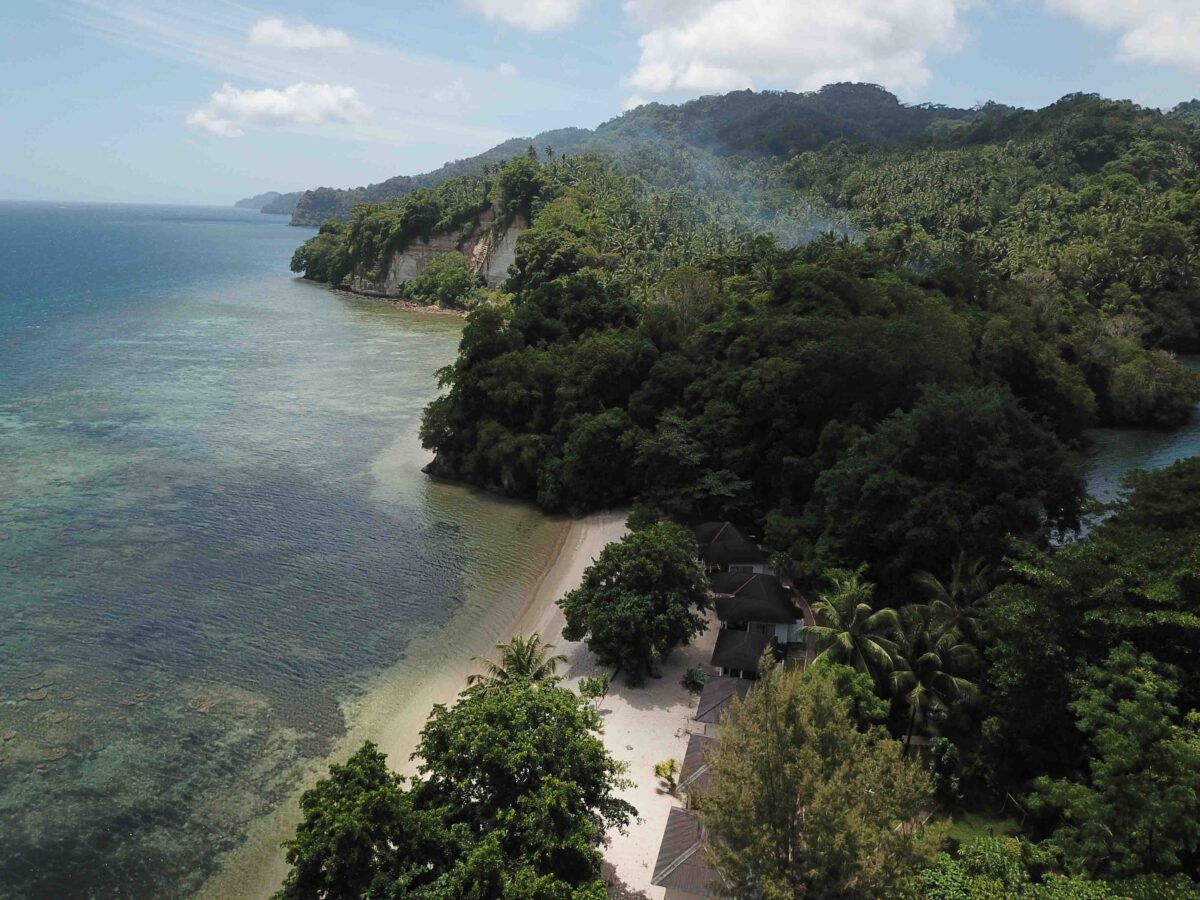
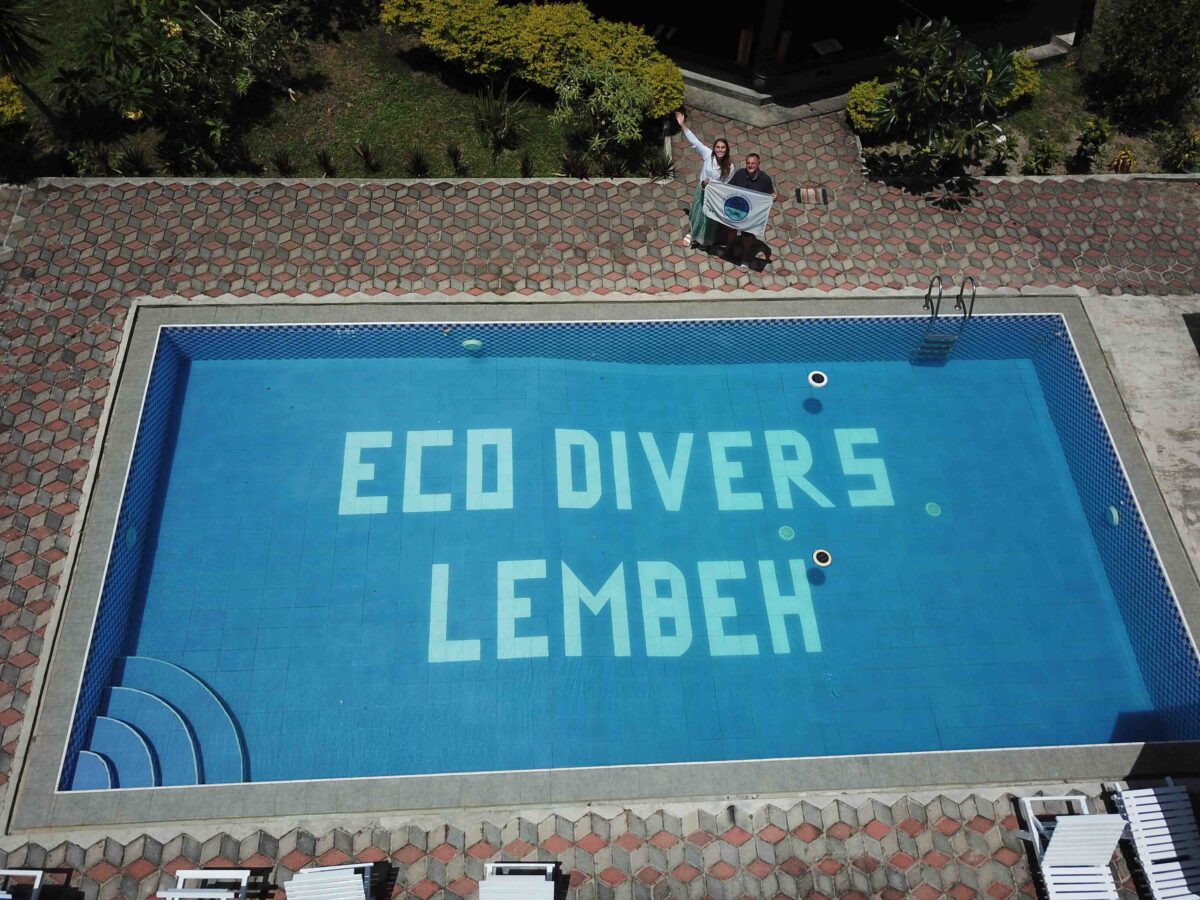
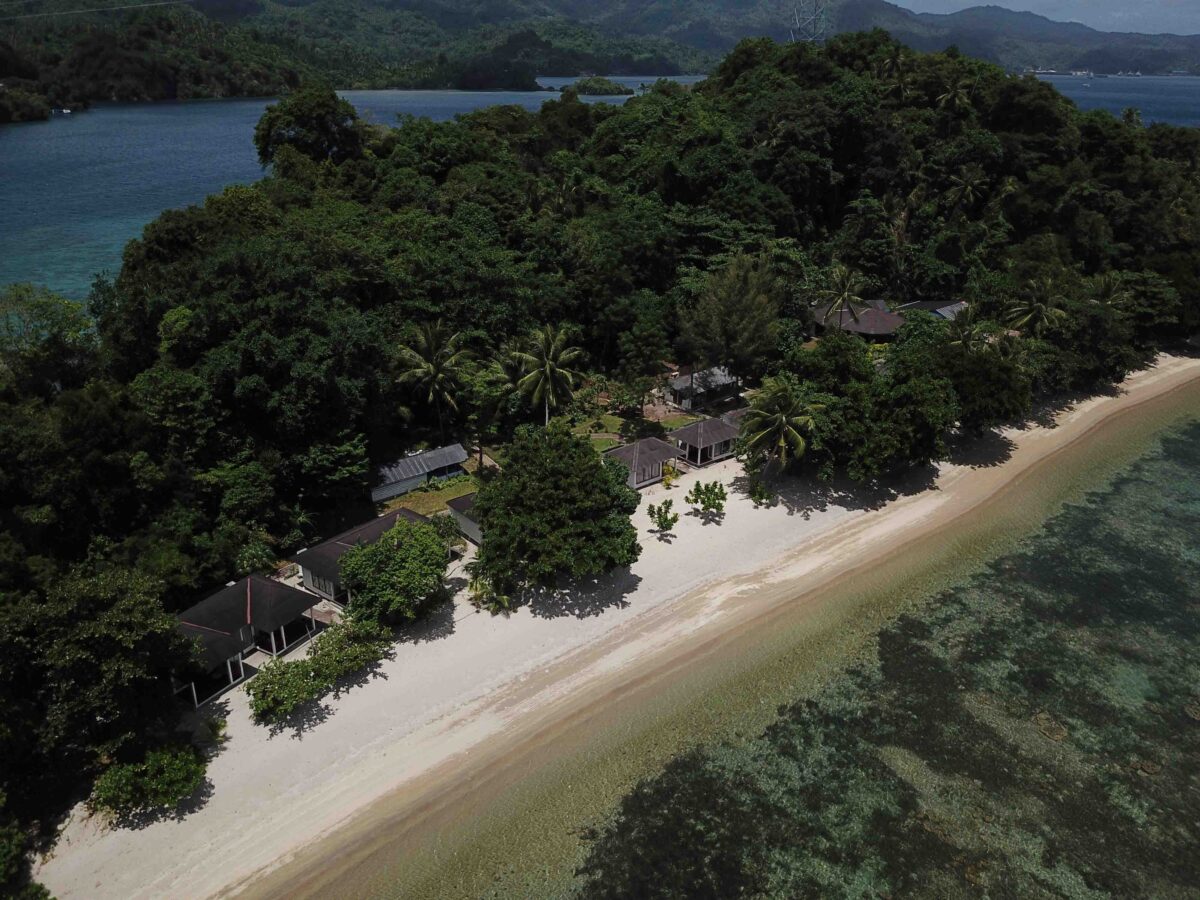
I chatted with Andrea Bensi, the Director about the business, and how their company originally started by offering a unique day liveaboard experience. Now they have a dive resort on the only white sand beach in Lembeh, appropriately named White Sands Lembeh. He explained to me how 20 years ago kerosene was favoured by operators due to its cheapness, but was environmentally damaging, so their team switched to diesel in order to lessen their carbon impact. They do a la carte dining where guests order in advance to reduce waste, and staff regularly do beach cleanups against their ever-coming stream of plastic debris due to a combination of ocean currents that drive Asia’s trash to their shores, as well as still underdeveloped local solid waste management.
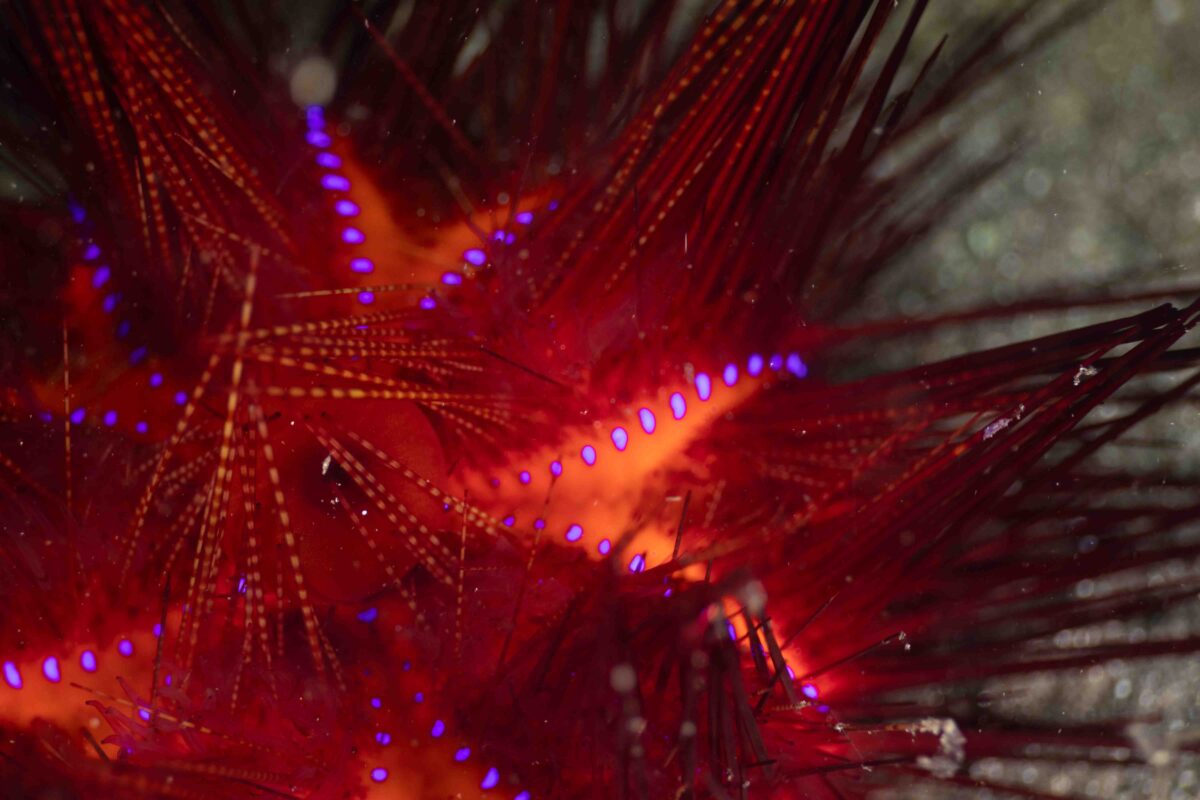
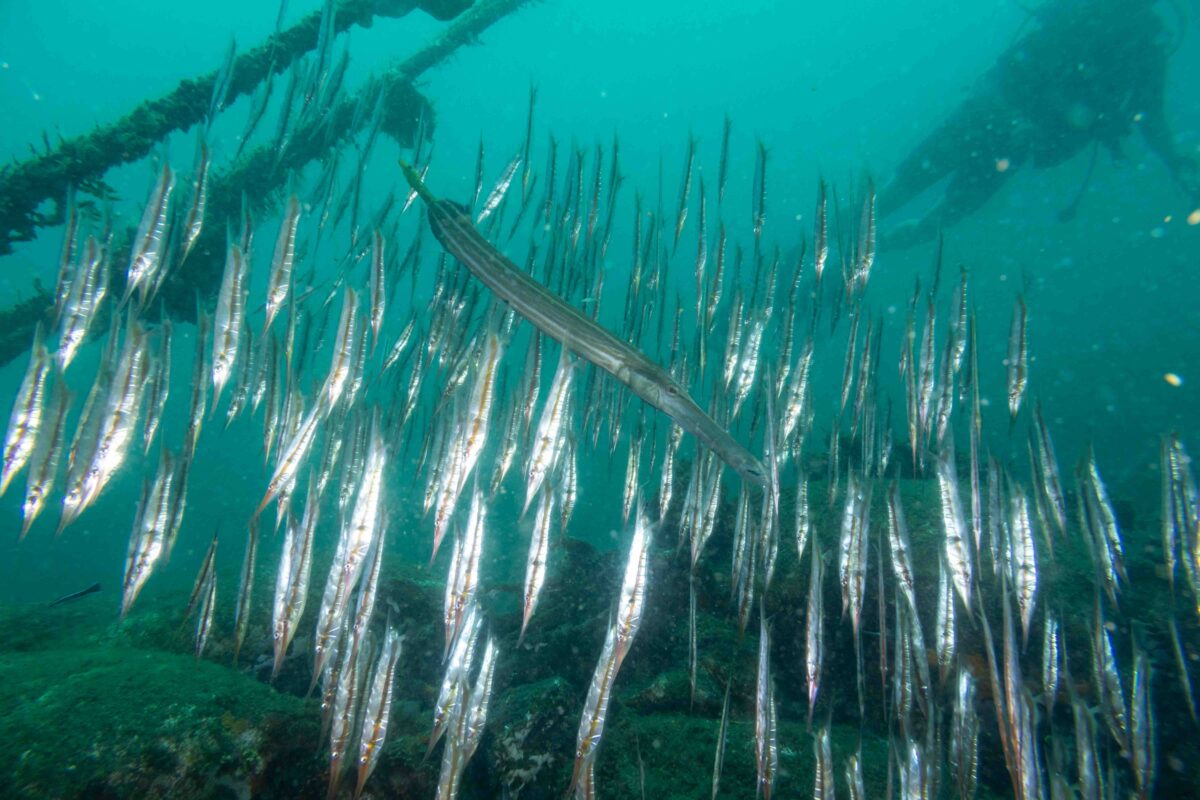
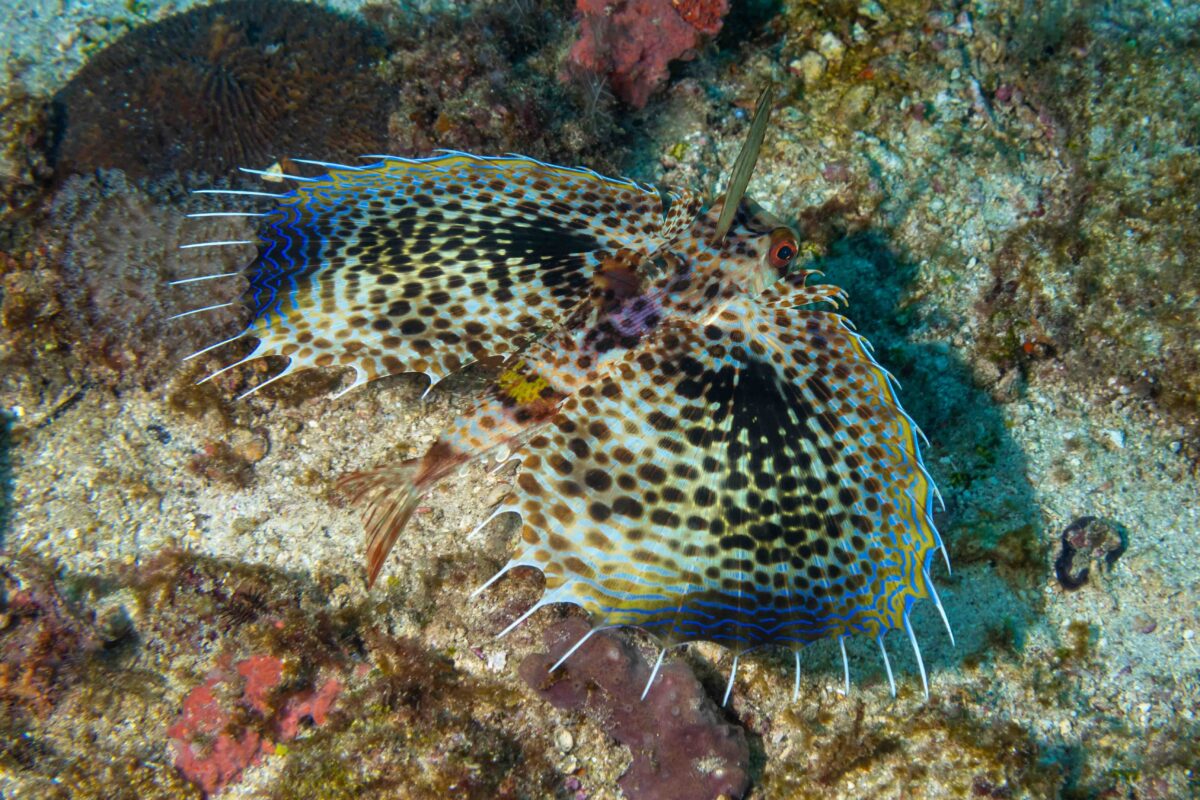
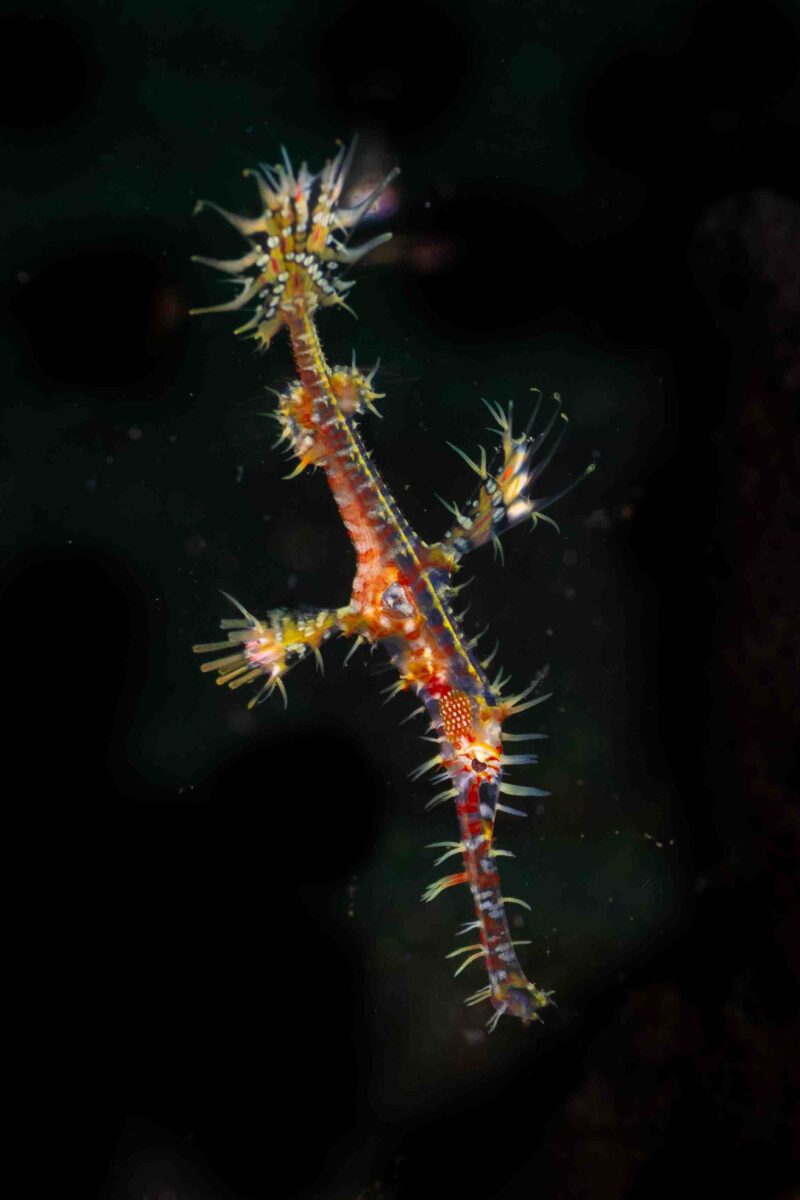
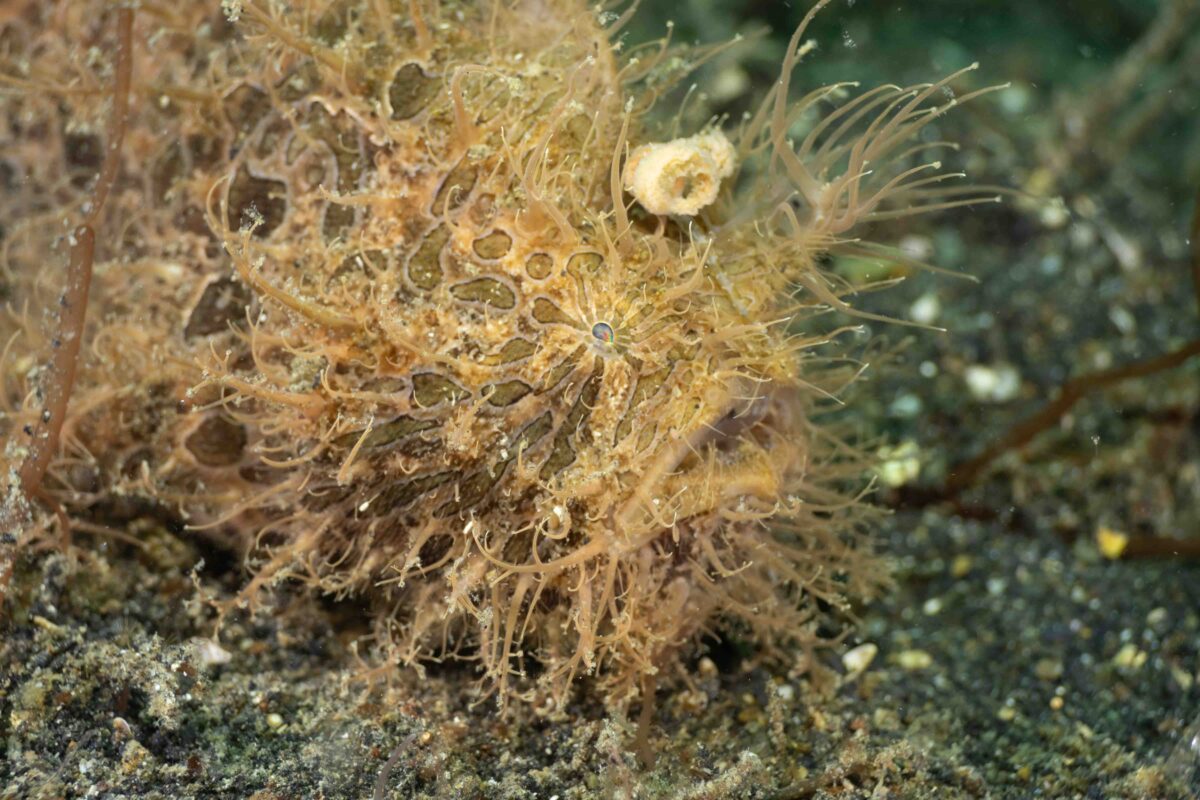
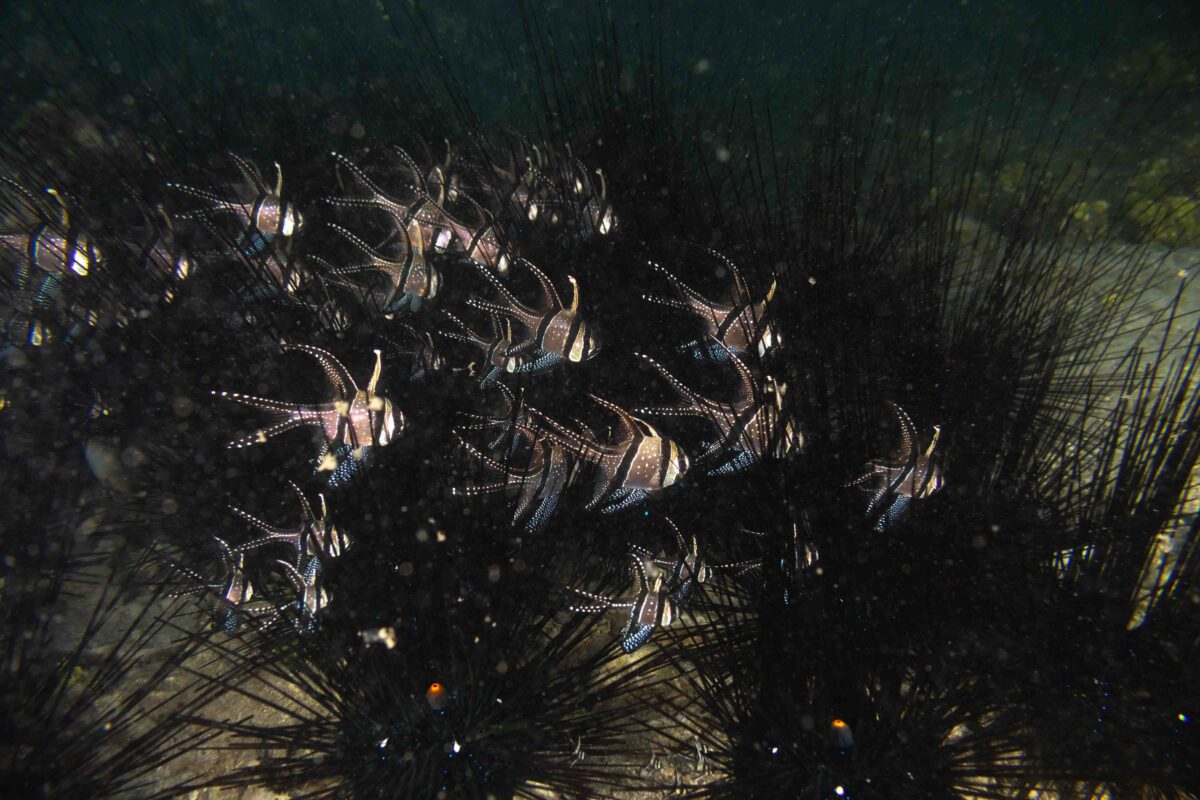
Of course, Lembeh is one of the crown jewels of the world for muck diving. A few of my highlights included seeing a blue ringed octopus (a first for me!), mandarin fish mating, a hairy frogfish, and harlequin shrimp to name a few. I was super-excited to be able to make the most of my macro lens attachment with my Nauticam housing! I also discovered my new favourite fish, the Bangka Cardinal fish. Look for it in my photo stream and in the Our World-Underwater program in New York in June 2024!
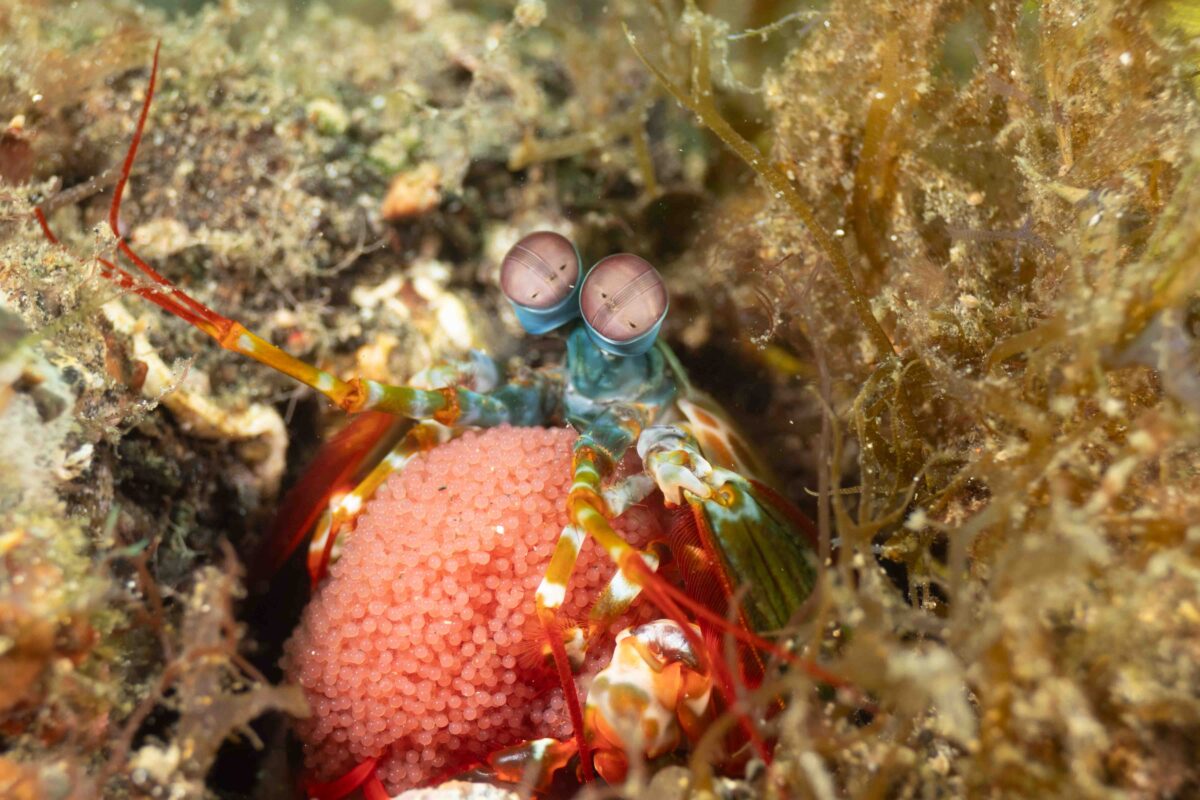
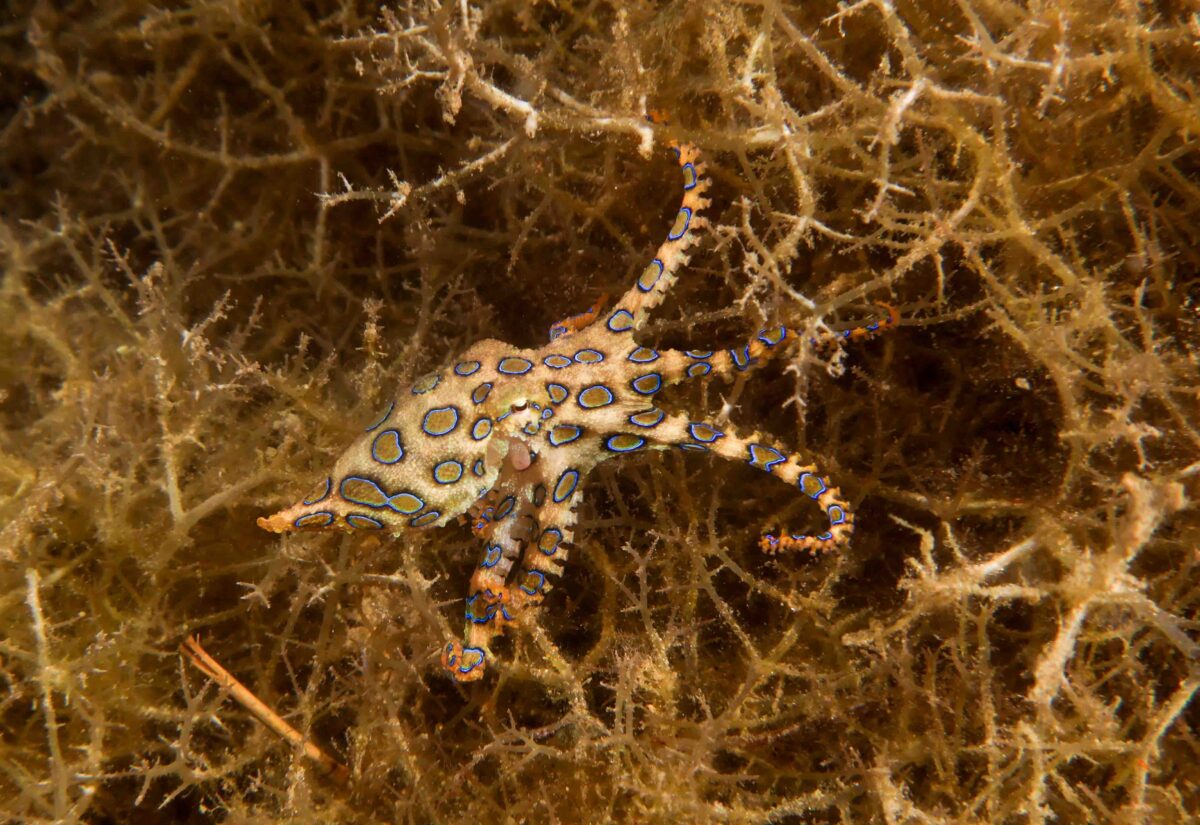
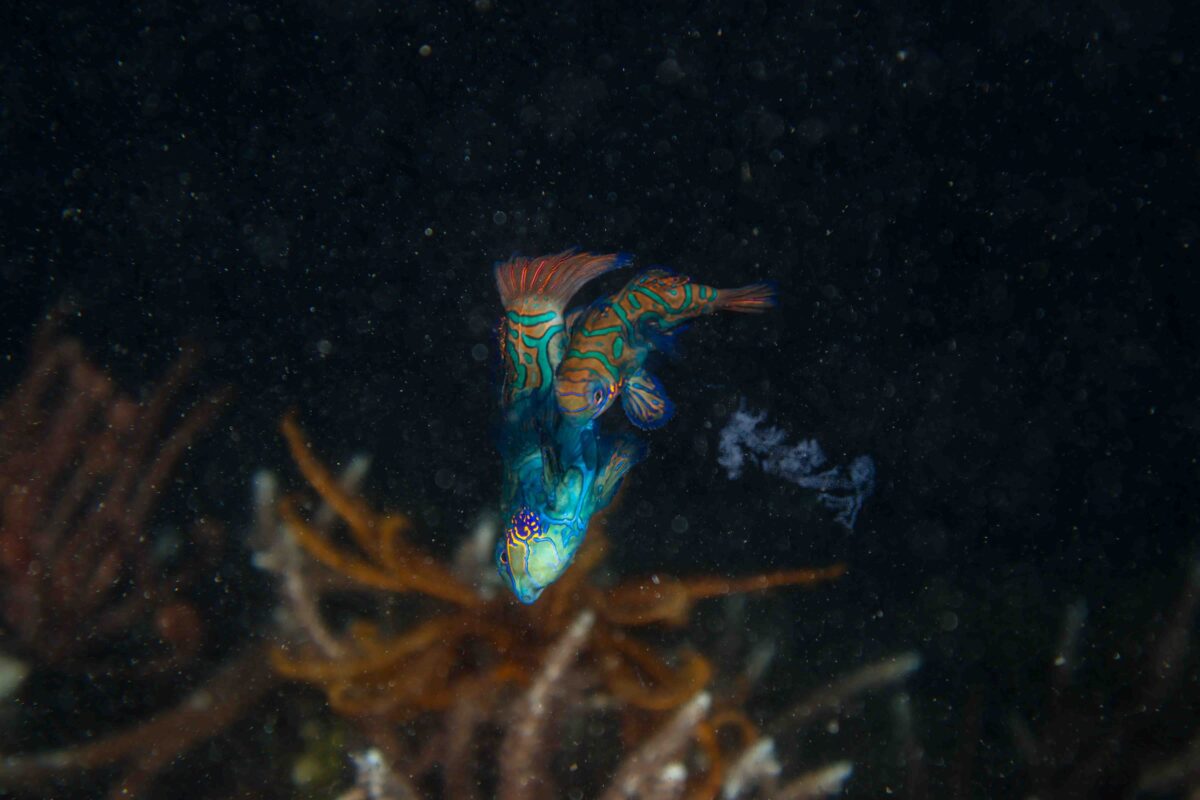
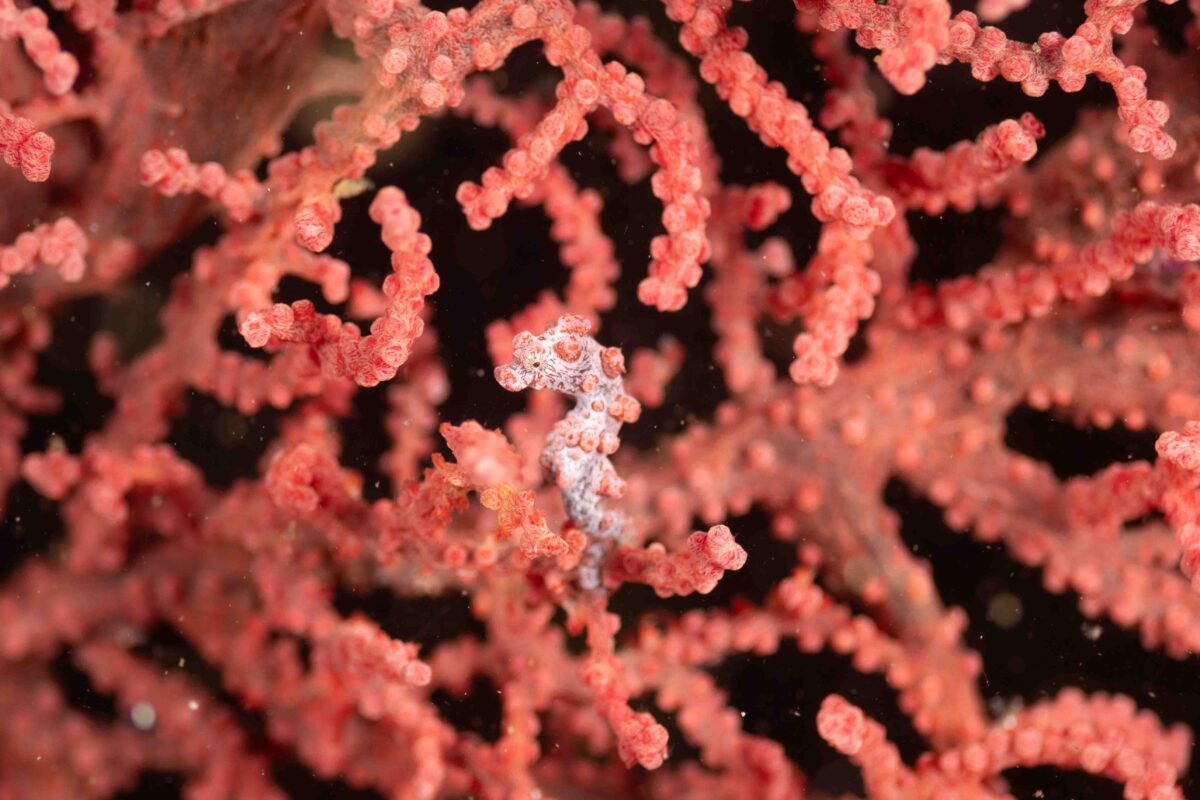
On a more serious note, while we were staying in Sulawesi I also witnessed several areas of coral bleaching.
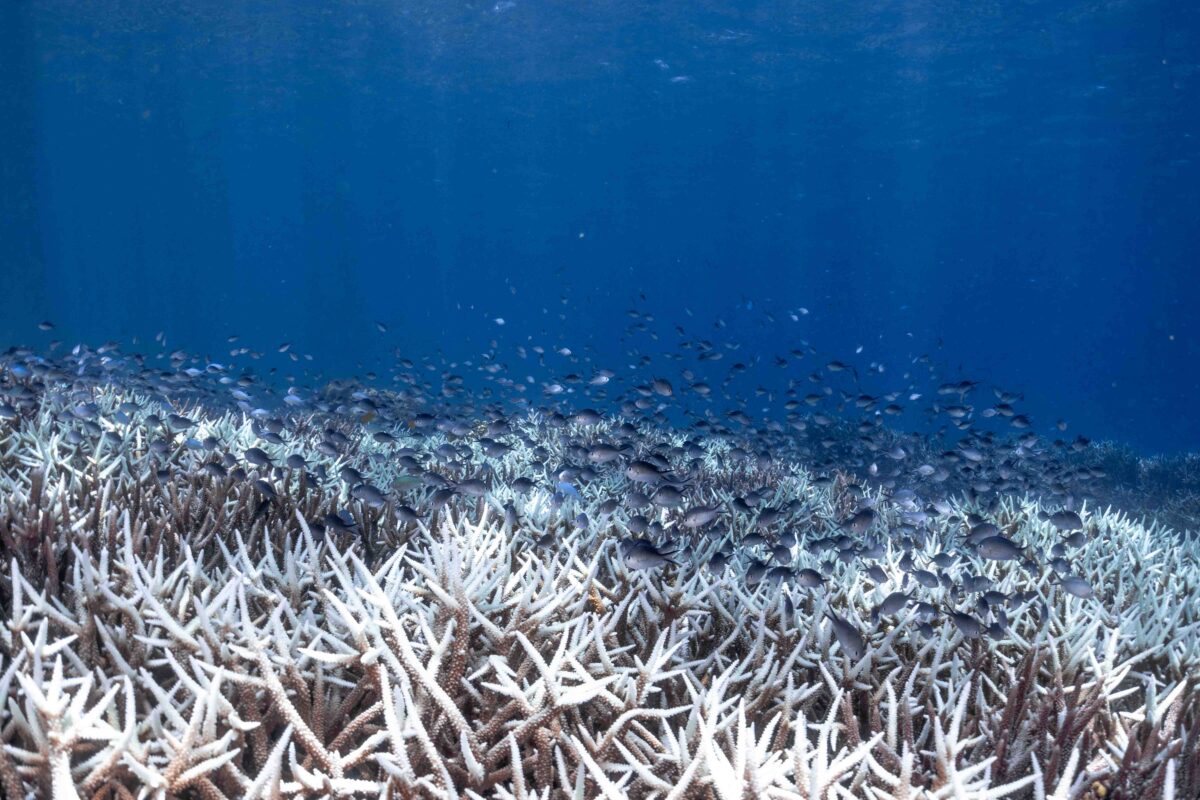
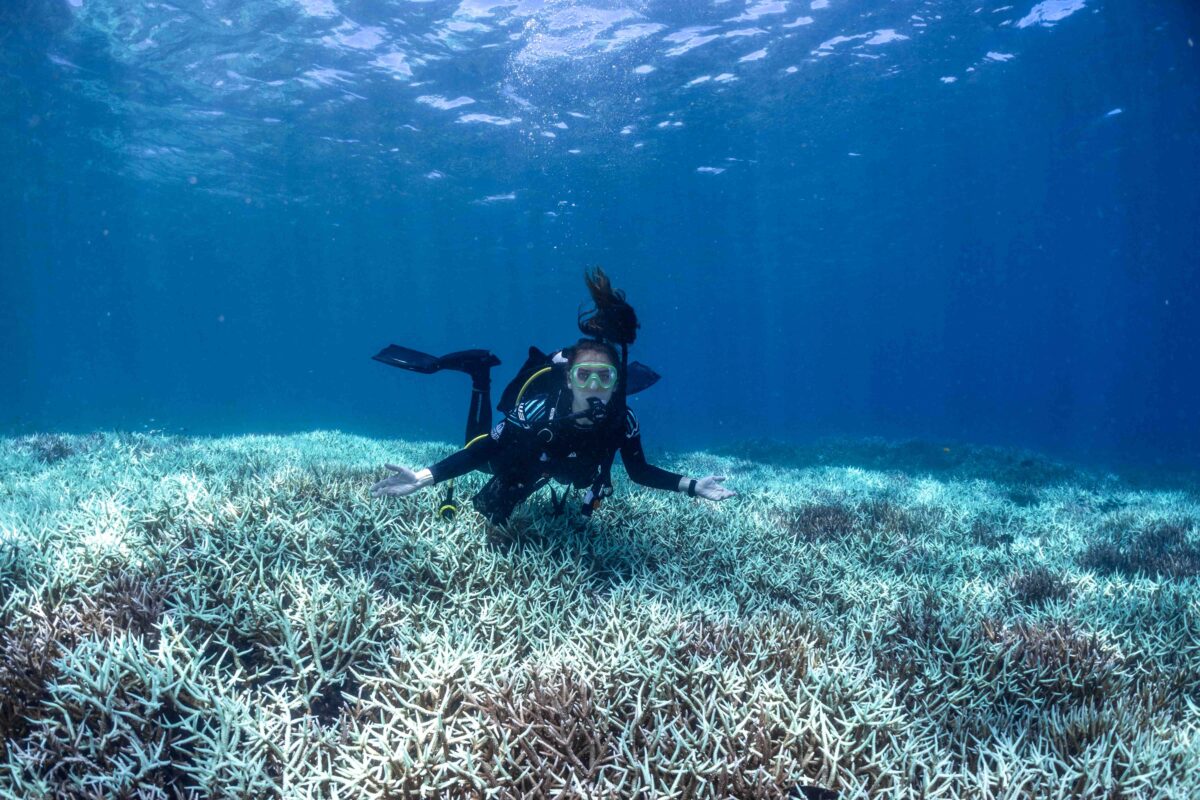
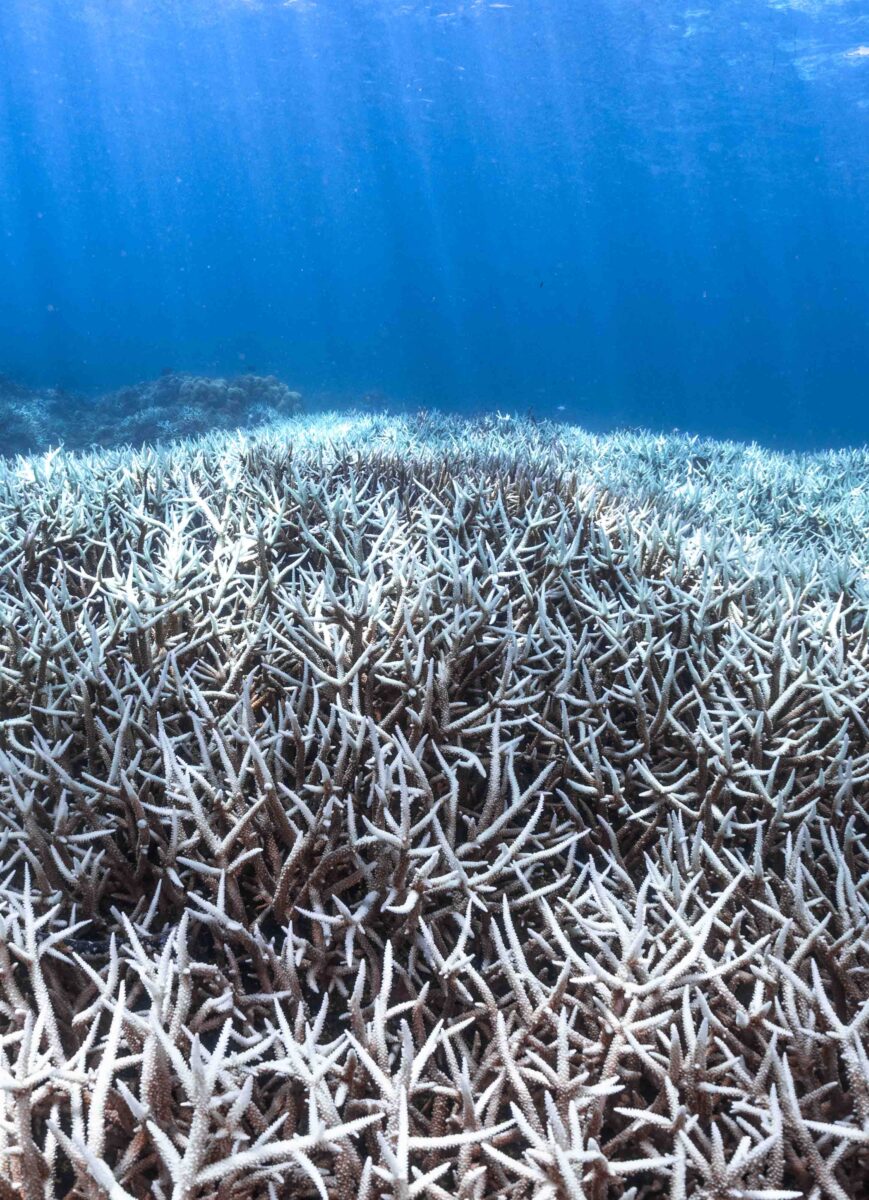
This was a sobering moment for me, as I was transported back to an identical scene on my home reefs here in Australia in 2017, when I was 16 years old. It reminded me what we are fighting for, and the need for so much more research and education to be done.
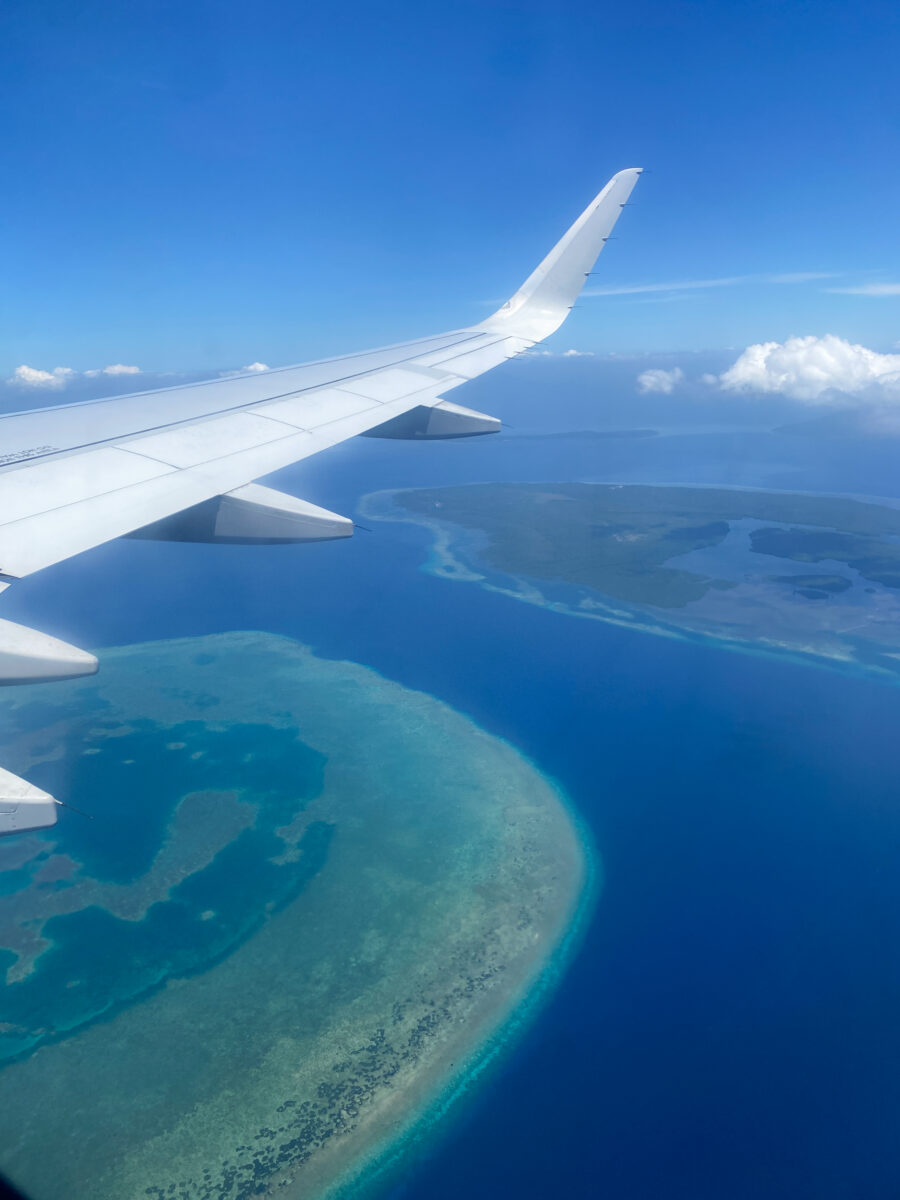
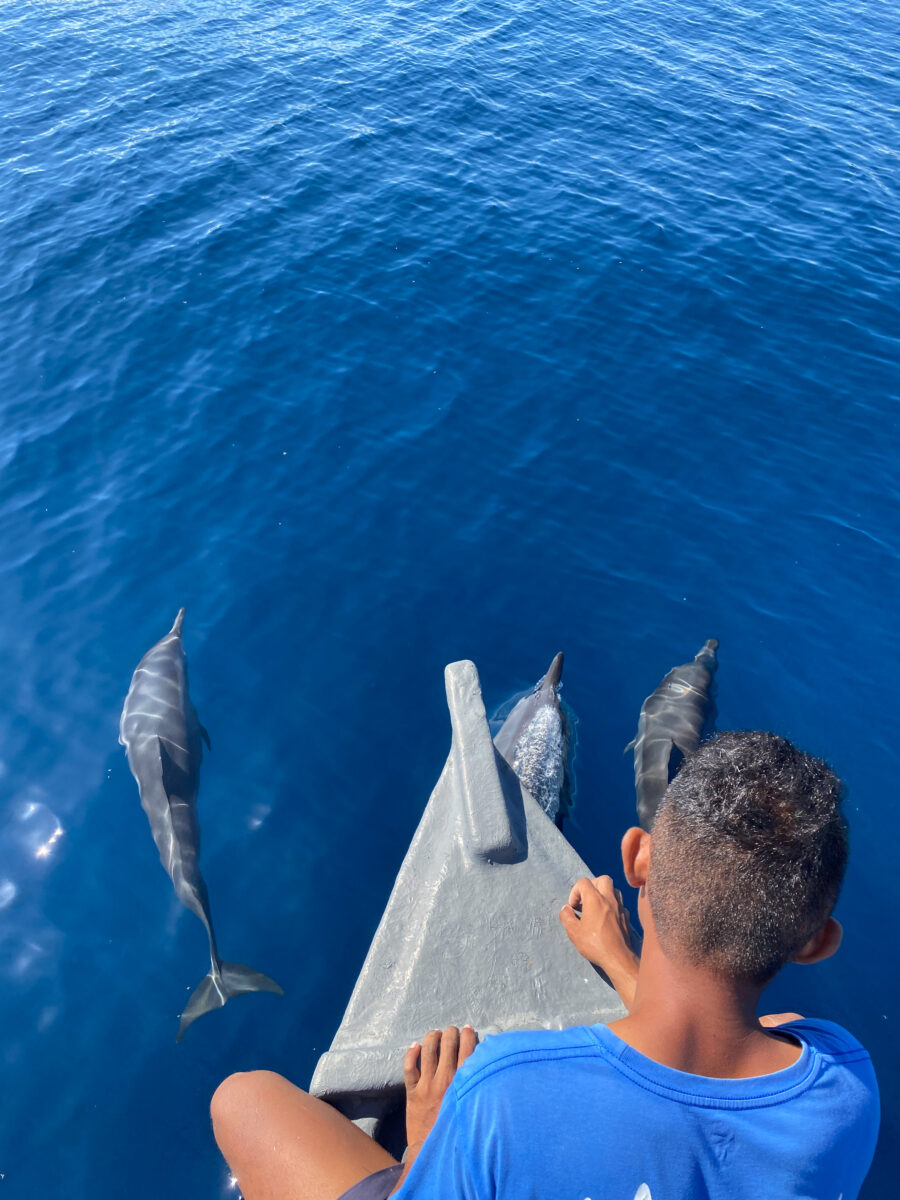
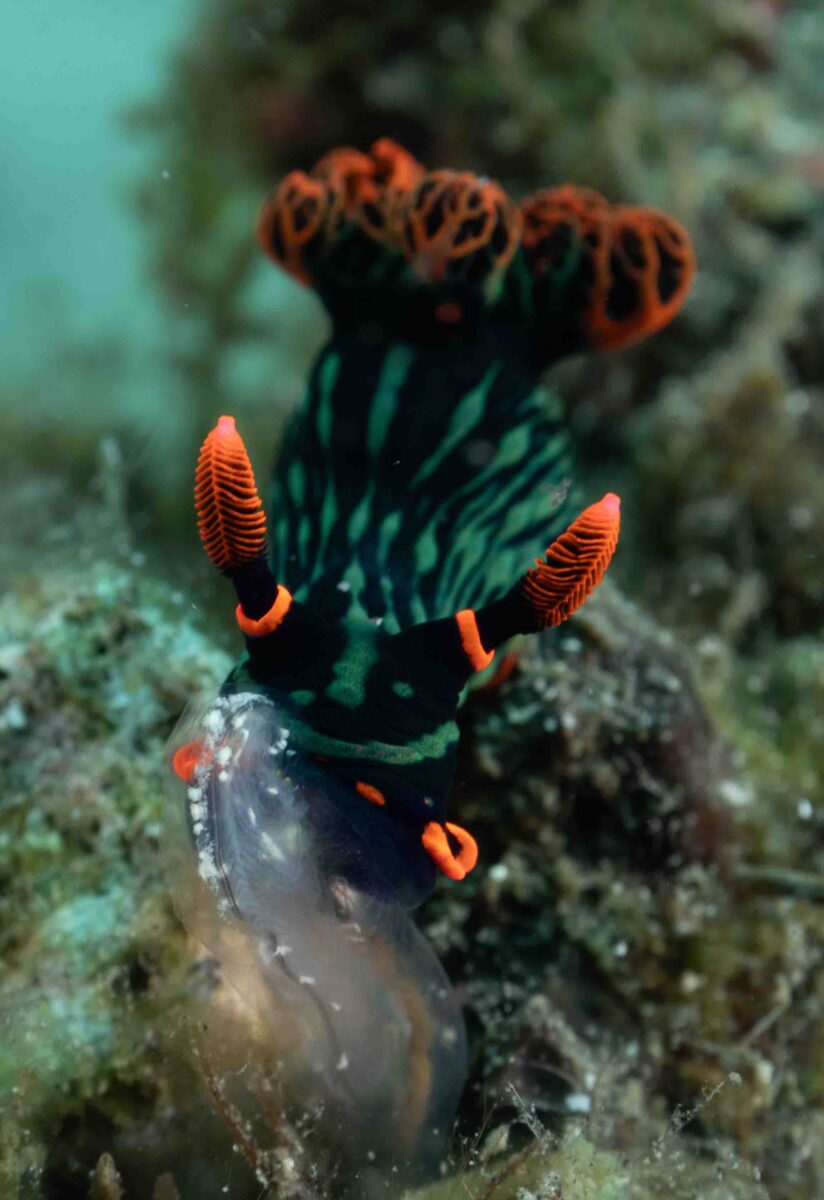
Overall, my time in Sulawesi exposed me to a variety of different styles of operating dive resorts and enterprises, as well as diverse diving environments. The warmth of the local Indonesian people truly shone through, with their hospitality and large smiles. Thank you to Stacey Tighe for coordinating my experience, and to Angelique, Andrea and Chris for hosting me. This won’t be the last time I travel to Sulawesi!
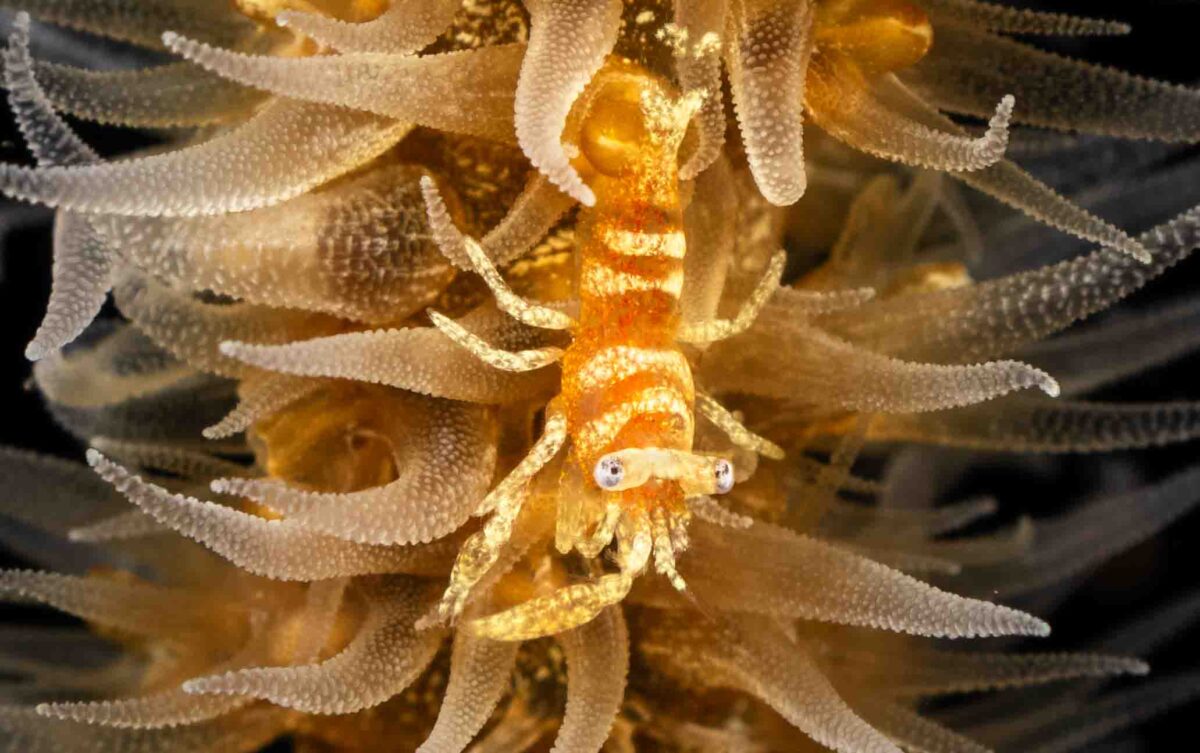
I am so grateful to OWUSS for making opportunities I would not have dreamed of before and broadening my horizons to a global scale. A special thank you to the countless volunteers behind OWUSS, and the sponsors that make this scholarship possible at ROLEX. I would also like to thank my equipment sponsors at TUSA, Waterproof International, Reef Photo & Video, Mako Eyewear, my camera gear sponsors at Reef Photo & Video, Nauticam, and long time scholarship supporters DAN, and PADI.
To follow along on my adventures, I highly recommend you follow me on social media!
My Instagram @sophie_dives is where I post most regularly.
You can also contact me on LinkedIn, Twitter, Tiktok, and the Australasian Scholar Facebook Page.
You can also subscribe to this blog here!